
2 California Veterinarian | March–April 2023 ® Preferred Employers Insurance has been... SINCE 2017 ...the endorsed workers’ compensation insurance carrier For CVMA members.
Features
2023 California Legislative Session Off to a Record Start

Member Profile: Inez Del Pino, DVM
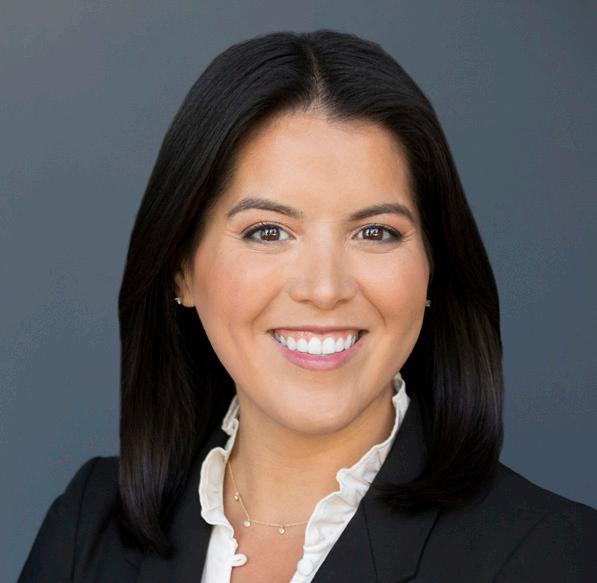
CVMA Discusses Economic Survey, Upcoming Bills at Annual Veterinary Leadership Forum
Students’ Views on Diversity, Equity, and Inclusion
CVMA 2022 Economic Survey Report—Part 3
Safety Orientation—Communicate with Your New Employees and Keep Them Safe
Saving Grace—Pacific Veterinary Conference Keynote Speaker
Navigating Medical Leave in the Workplace
CDFA News: California’s 2023 Reportable Disease List and Laboratory Certification Program
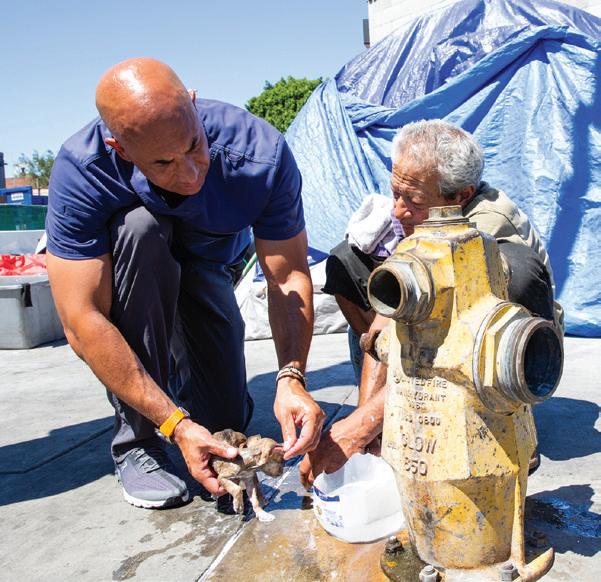
New CVMA Online Mentoring Presentations for Students and New Grads!
Departments
CE Calendar
Director’s Corner
First-Year Veterinarian News & Now
Compliance Corner—Brushing up on Continuing Education
RVT News—CVMA Proposes RVT Scope of Practice Expansion to Help Address Access to Veterinary Care Issue
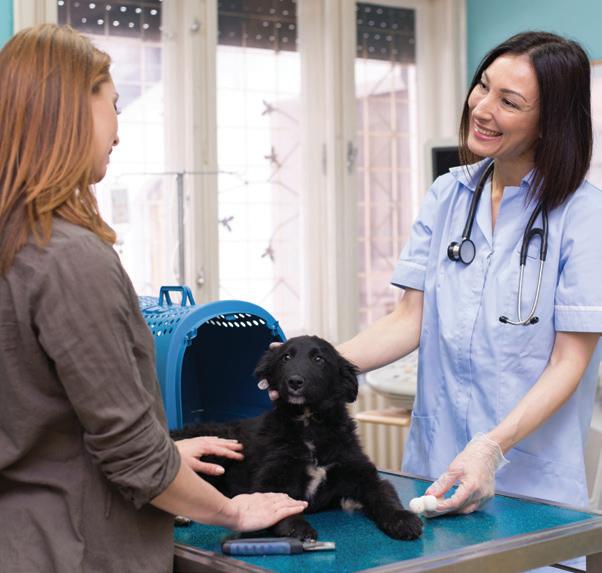
CVMA Remembers
Something to
Upcoming CE
3 cvma.net/publications CONTENTS
Student News University News Classifieds Ad Index
Pacific Veterinary Conference in Long Beach
Online Seminars 8 4 26 10 5 35 11 6 12 7 16 14 23 22 24 34 32 42 37 38 43 45 46 40 8 22 24 32 COVER PHOTO: COURTESY OF PROJECT STREET VET
Wag About
2023
CVMA
Sexual Harassment Prevention Education and Training
March 22, 2023




5:00 PM–6:00 PM Non-supervisors (1 CEU)

5:00 PM–7:15 PM Supervisors (2 CEUs)
March 28, 2023
12:00 PM–1:00 PM Non-supervisors (1 CEU)
12:00 PM–2:15 PM Supervisors (2 CEUs)
For more information, see page 35.
California Animal Blood Banking Requirements
April 4, 2023 | 1 CEU
12:30 PM–1:30 PM
April 26, 2023 | 1 CEU
5:30 PM–6:30 PM
For more information, see page 35.
Pacific Veterinary Conference in Long Beach

June 9–12, 2023 | Earn up to 28.5 CEUs
For more information, see page 26.
Major Sponsors:
CVMA Fall Seminar in Tahoe

October 6–8, 2023 | 12 CEUs for veterinarians and 8 CEUs for technicians and CVMA CVAs
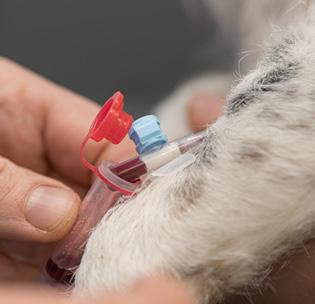
Mark your calendar now—registration opens in May. Watch your email for more information.
Registration for all CVMA events can be made online by logging onto cvma.net or by calling 800.655.2862.
CVMA-AFFILIATED PROGRAMS
California Veterinarian (ISSN 00081612) is published bi-monthly by the California Veterinary Medical Association, e-mail: staff@cvma.net. California Veterinarian is an official publication of the California Veterinary Medical Association. Annual subscription rates to non-members: $50 U.S., $60 Canada/Mexico, $70 overseas. Price per single copy: $10 current year, $12 back issues. Periodicals postage paid at Sacramento, CA and at additional mailing offices. POSTMASTER: Send address changes to California Veterinarian, 1400 River Park Dr., Suite 100, Sacramento, CA 95815-4505. Phone: 800.655.2862
The CVMA and California Veterinarian assume no responsibility for material contained in articles and advertisements published, nor does publication necessarily constitute endorsement by them. ©2023 CVMA

The Publication of the California Veterinary Medical Association
Publisher Dan Baxter
Managing Editor Kristen Calderon
Editor Taryn DeOilers
Publication Designer Marissa Collier
Classified Advertising Laura Phillips
BOARD OF GOVERNORS
President Dr. Keith Rode
President-Elect Dr. Michael Karle
Member-at-Large Dr. Jennifer Hawkins
Members
Dr. Peter Bowie
Dr. Patrick Connolly
Dr. Misty Hirschbein
Dr. Adam Lauppe
Dr. Julia Lewis
Dr. Peter Mangold
Dr. Diane McClure
Dr. Teresa Morishita
Kristi Pawlowski, RVT
Dr. Kevin Terra
Dr. Peter Vogel
Dr. Jodi Woods
Treasurer Dr. George Bishop
Chair, House of Delegates Dr. Laura Weatherford
STUDENT REPRESENTATIVES
University of California, Davis Mary “Molly” Hallsten
Western University Inez Rivero
CVMA STAFF
Executive Director Dan Baxter
Director of Communications Kristen Calderon
Director of Finance Kathy Van Booven
Director of Meetings and Events Sarah Erck
Director of Regulatory Affairs Dr. Grant Miller
Membership and Student Services Manager Laura Phillips
Publications Manager Taryn DeOilers
Accountant Shanna Allen
Communications and CE Coordinator Nicole Campos
Finance Coordinator Sharmele Browne
Graphic Designer Marissa Collier
Meetings and Events Coordinator Lily Briggs
Meetings and Events Coordinator Erica Ferrier
Membership Coordinator Jennifer Smith
Receptionist Mary Young
DISPLAY ADVERTISING
Please contact Taryn DeOilers at 916.649.0599 ext. 16 or email tdeoilers@cvma.net.

4 California Veterinarian | March–April 2023 UPCOMING CE Volume 77 Number 02 March–April 2023 Tell us what you think! Want to comment on what the CVMA is doing or writing about? Send an email to comments@cvma.net or call 800.655.2862. Your thoughts and opinions matter to us. The CVMA is YOUR association—let us hear your voice!
MRC CA CALIFORNIA VETERINARY MEDICAL RESERVE CORPS
Afew of you reading this know that, prior to my joining the CVMA approximately 2 ½ years ago, I was a private practice attorney in Sacramento working at the Wilke Fleury law firm. My career as a lawyer lasted 21 years before I “answered the call,” if you will, to embark on another path here with the CVMA.

But even prior to joining this great organization, I worked closely with it. Indeed, while the CVMA is now my employer, it used to be my client. From 2000 through 2020, I worked with the CVMA as outside counsel, interfacing predominately with my now-predecessor Valerie Fenstermaker and her predecessor Dr. Richard Schumacher. During that time, I assisted the CVMA in various capacities, ranging from items as unremarkable as reviewing building leases to more memorable engagements like attending hearings at the Capitol to provide a “lawyer’s-eye view” of legislation under consideration.
However, what I would consider the most lasting contribution to the CVMA during my two decades is a program that recently completed its ninth year of existence: the CVMA Legal Services Program. Back in 2014, Val Fenstermaker and I put together a program through which CVMA member veterinarians could avail themselves of 30 minutes of free legal advice each month, on subjects ranging from business and contract inquiries to disciplinary/licensure items to Cal/OSHA-related matters. The program “opened its doors” on November 1, 2014, and those doors haven’t closed since.
At the January 20 meeting of the CVMA’s Board of Governors and also during the next day’s joint meeting of the Board and the CVMA’s House of Delegates, I provided an update on the CVMA’s Legal Service Program, including the types of inquiries that are commonly presented to the lawyers servicing the program (note that this is a general report, as the confidentiality of callers is strictly maintained by the law firm). A large percentage of member inquiries deal with employment matters, and many of those often consist of questions concerning the rights and obligation of employers and employees relative to things like leave,
breaks, and overtime. Another repeated area of inquiry concerns interactions with the Veterinary Medical Board relative to both potential disciplinary actions and more benign matters like those pertaining to premises inspections. And since early 2020, the Program has obviously seen a large measure of COVID-related questions join the fray.
The Legal Service Program is funded by the CVMA and Veterinary Insurance Services Company and welcomes inquiries from practice owners and employee veterinarians alike. Since the Program’s beginning nearly a decade ago, it has consistently been cited by membership as one of the most valuable benefits that we offer. No question is too small, and the Program is home to inquiries about essentially any practice-related subject that you may come across (no domestic relations or criminal law questions, please!). If you find yourself thinking, “what do I do now?” or “what should I do if…?”, and the question is legal in nature, there is a good chance that the question is appropriately directed to the lawyers servicing the Program.
On page 32 of this issue of California Veterinarian, you will find an article (part of a longstanding legal services series) written by attorney Jizell Lopez, on the topic of medical leave. Jizell, one of the lawyers dedicated to the CVMA's legal services program, will also be presenting a session on the same topic at the upcoming Pacific Veterinary Conference in Long Beach on Sunday, June 11. If you are a CVMA veterinarian member and you have a question for Jizell or her colleagues on this or another subject, don’t be shy! Call 916.441.2430 and tell them that you are a CVMA member. I guarantee you will learn something!
Dan Baxter Executive Director
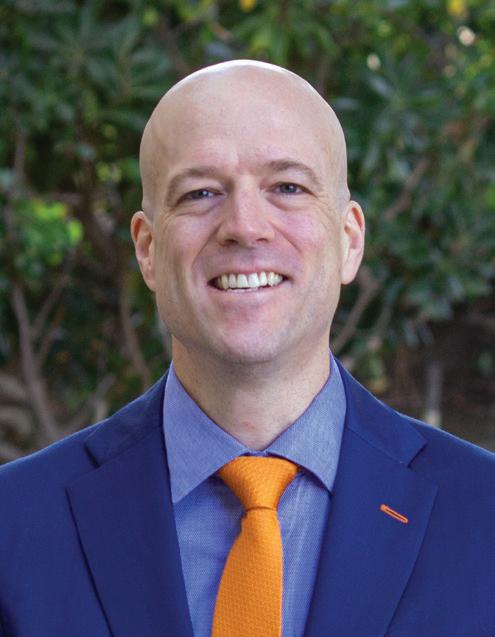
5 cvma.net/publications
DIRECTOR'S CORNER
Easing Their Passage
By Anne Chiruvolu, DVM
Cradling the tiny tortoiseshell cat in my arms, I couldn’t help but be reminded of holding a newborn baby. The cat was soft and weak, not even six pounds, and curled up in the fetal position, breathing slowly. But instead of a newborn, she was nearly 15 years old and dying from end-stage chronic kidney disease. I had met her only hours earlier at urgent care for one of the presenting complaints I worry about most: “geriatric cat, lethargic, not eating.” Now an IV catheter was taped into her forelimb and her owner sat in the exam room before me with a box of tissues, preparing to say her final goodbyes.
In veterinary school, we spent time going over how to run a euthanasia. How to open by asking owners if they wish to be present, and explaining step-by-step what would occur. How the owner could be shocked by the unexpected—agonal breathing, movement, vocalizations, and releasing bladder or bowels. How it would be our responsibility to push the syringe, to make one final diagnosis: deceased. How to sit with the owners in their sorrow and lend an ear, if they wished to talk.
My very first euthanasia, still in school, required little in the way of communication. One of the residents and I had crouched in a stall in the livestock barn with a very large syringe and a terminally ill pet sheep whose owners elected euthanasia but did not wish to be present. After she passed, we confirmed her death, then marked her forehead with the letter “B.”
Of course, my first euthanasia as a practicing small animal veterinarian was very different—and no two have been
the same since. I have been surprised by the number of owners who did not expect their pets’ eyes to be open after passing. I’ve found myself unsure of how to auscult a deceased pet when the owner threw themselves, sobbing, over the body. Some owners are at peace already, relieved to give their pet this final gift after a long, well-lived life. Others are angry at the circumstances— companions gone before their time due to trauma or illness. Almost all wish to be present, and almost all are seeking reassurance that they made the right choice. But a few have asked for convenience euthanasia that I can’t ethically perform; those conversations are even tougher and end with me watching the owner leave with a live pet they didn’t expect to be bringing home.
Though I’ve now been performing euthanasia for the better part of a year, I’m still finding myself fine-tuning what to say. Each time I try to think back to being in the owners’ shoes. I lost my geriatric pug, Penelope, to liver cancer a few months before graduation, and I still remember the kindness of the emergency veterinarian who helped her pass. She asked me how Penny had come into my life, and what she liked to do. Talking felt good as I watched the pink fluid slide through her catheter extension. But now that I’m on the other side of that table, I find many owners don’t want to talk. So for them, I stand back respectfully, bearing witness to a moment they will remember forever, hoping that the right words will come when I need them.
All of this is in mind as I cradle the tortoiseshell cat, preparing to ease her passage. How can I do “even better yet” this time, for this animal? And, what will I learn to help the next? Holding her gently, I open the door and step softly into the exam room.

6 California Veterinarian | March–April 2023 FIRST-YEAR VET
“Though I’ve now been performing euthanasia for the better part of a year, I’m still finding myself fine-tuning what to say. Each time I try to think back to being in the owners’ shoes.”
MARCH 25, 2023
CVMA Board of Governors Meeting
APRIL 13, 2023
CAVMRC Steering Committee Meeting
MAY 26, 2023
VISC Board Meeting
News Now & CVMA
New Video Updates on the CVMA Website
The CVMA is excited to unveil new video content on our website! CVMA Executive Director Dan Baxter will now be providing periodic video reports, entitled "Director's Check-In," keeping CVMA members up-to-date on the CVMA's current efforts and offerings. Visit the homepage of cvma.net to view the latest Director's Check-In, and to hear a welcome message from the CVMA's 2022–2023 President, Dr. Keith Rode!
Deadline for Student Scholarship Applications Is April 15
JUNE 9, 2023
Joint Board of Governors/House of Delegates Meeting
OCTOBER 6, 2023
CVMA Board of Governors Action Planning Meeting
The deadline to submit applications for the California Veterinary Medical Foundation/ Veterinary Insurance Services Company (CVMF/VISC) and the CVMF Ron Faoro, DVM, Student Scholarship Awards is April 15. UC Davis and WesternU veterinary students who are in good standing are eligible for the awards and are encouraged to apply! For more information and to apply, visit cvmf.net. Completed application forms should be emailed to staff@cvmf.net.
Attention, All CVMA Member Relief Veterinarians!
The CVMA offers the Relief Veterinarian Directory as a member benefit to help connect veterinarians looking for relief help with locum tenens veterinarians. If you are a CVMA member and a relief veterinarian, we want to include your information in our updated database. To join the directory, please contact Jennifer Smith at jsmith@cvma.net or call 800.655.2862.
Share Your Thoughts: Contribute to Our Magazine
California Veterinarian is accepting contributions for consideration of publication. Please send letters, story ideas, and editorial pieces for consideration to comments@cvma.net. All material is published at our discretion and we reserve the right to edit all submissions for clarity and length.

7 cvma.net/publications NEWS & NOW
UPCOMING
MEETINGS
= HYBRID OR VIRTUAL EVENT
2023 California Legislative Session Off to a Record Start

This year, California legislators set a record start to the legislative session by introducing the highest number of bills in over a decade. By the February 17 bill submission deadline, over 2,610 bills were recorded, marking a significant jump from the 2,000 introduced in 2022. Of those bills, 1,040 were introduced as “spot” bills—or placeholder measures— meaning that 40% of the bills that will be considered in 2023 have yet to be fully articulated to the public. Consequently, new legislation that could impact the veterinary profession may still emerge through one or more of these “spot” bills.
CVMA’s lobbyist Christina DiCaro has reviewed every 2023 bill to determine which should move forward to the CVMA legislative team. That team, which includes CVMA lobbyists, key staff, the Executive Committee, and Legislative Committee
co-chairs Dr. Dayna Wiedenkeller and Dr. Brent Wooden, closely monitors all bills and represents the CVMA in meetings with legislative staff and bill sponsors. On February 24, the legislative team discussed over 30 such bills to assess their impact on veterinary medicine, animal health and welfare, and employer/employee relations. Ultimately, the legislative team referred nearly all of those bills for review by the CVMA Legislative Committee. The CVMA Legislative Committee will discuss each bill at their March 17 meeting and recommend positions to the CVMA Board of Governors. The Board will then vote on official CVMA positions at its March 25 meeting.
Among the bills being followed by the CVMA this session, the following are of particular importance:
8 California Veterinarian | March–April 2023 LEGISLATIVE UPDATE
AB 814 (Lowenthal) Veterinary Medicine: animal physical rehabilitation.
Sponsored by a small group of physical therapists, AB 814 was introduced as a “spot” bill and includes language citing the “intent of the legislature to authorize a veterinarian to refer an animal to a licensed physical therapist holding an advanced certification to provide animal physical rehabilitation under the supervision of the veterinarian.” There is no additional language contained in the bill at this time. In conversations with the author’s office and bill sponsor, it is likely that this bill will ultimately resemble AB 3013-Chu, which failed in 2018. That bill would have amended California’s Veterinary Medicine Practice Act to create an “animal rehabilitation facility” where animals would be treated under the supervision of a physical therapist through the referral of a veterinarian. Physical therapists would only have been required to earn a certificate from a program accredited by the Veterinary Medical Board and the Physical Therapy Board in order to practice on animals. It would have also allowed for the creation of an animal physical rehabilitation assistant position under the supervision of the physical therapist.
While the CVMA has yet to take an official position on this bill, historically it has been strongly opposed to the referral model and believes that it is in the best interest of the animal patient for a veterinarian to supervise care. With a referral, the patient would be seen by a physical therapist over a period of visits and the physical therapist would determine whether there are health issues, if the animal is in pain, and whether they should send the animal back to the veterinarian. The CVMA strongly believes that only a veterinarian has the education, skills, and experience to make these determinations, and that the proposed referral model not only puts animals at risk, but puts undue liability risks on the referring veterinarian. Physical therapists are educated in human medicine. A certification in animal physical therapy does not give those therapists the necessary education or experience to make independent decisions regarding the care and treatment of an animal patient.
Status: This bill will be scheduled for review by the Assembly Business and Professions Committee.
AB 1232 (Connolly) Department of Food and Agriculture: resilient and higher-welfare
grant program.
This bill tasks the California Department of Food and Agriculture (CDFA) with creating and implementing a grant program to support the implementation of higher standards of care and more climate-smart farming practices. The bill would require the CDFA to establish an annual competitive grant application process that enables producers and processors seeking to improve farm animal welfare to apply to the CDFA for financial assistance. Grant priority would be accorded based on the satisfaction of specified qualifying criteria.
As currently written, the bill creates new defined terms relating to the higher welfare grant program. Among those terms are “animal welfare certification” and “higher welfare”—both of which specify when and how antibiotics may be administered to animals.
The CVMA was actively involved in shaping California’s judicious antibiotic use and stewardship laws in 2014 and 2015, when
then-senator Jerry Hill sponsored bills supporting the veterinarian’s professional judgment in the judicious use of antibiotics. Legislation passed at that time also set California apart from other states by requiring that all veterinarians take at least one unit of continuing education every four years on the topic of the judicious use of antibiotics.
The CVMA will be reaching out to the author’s office to clarify language in AB 1232 pertaining to antibiotic use.
Status: This bill will be scheduled for review by the Assembly Agriculture Committee.
AB 669 (Cortese) Pets and veterinary services: emotional support dogs.
While this bill is also currently a “spot” bill, the CVMA is communicating with the author and sponsors about its potential to become a vehicle to expand scope of practice for California’s Registered Veterinary Technicians (RVTs).
The topic of RVT scope of practice has been discussed not only at the CVMA, but was also a significant item of analysis at the California Veterinary Medical Board (VMB) in 2022. The CVMA will continue to actively engage the author and stakeholders on this priority topic.
Status: This bill will be scheduled for review by the Assembly Business and Professions Committee.
2023 Legislative Calendar
January 4
January 10
February 17
May 28
July 1
July 14
September 8
September 14
October 14
Legislature reconvenes
Deadline for Governor to submit budget
Last day for bills to be introduced
Last day for bills to pass out of house of origin
Last day for policy committees to meet and hear bills
Budget bill must be passed by midnight
Last day to amend bills on the Floor (general session)
Last day for each house to pass bills
Last day for Governor to sign or veto legislation
CVMA Legislative Action Center
For specific information on bills or to track CVMA-monitored bills through the legislative process, visit the CVMA’s online Legislative Action Center in the Advocacy section of cvma.net.
9 cvma.net/publications
I AM THE
Members are the heart of the CVMA
c Associate/relief veterinarian
c UC Davis
c Practice type: Small animal practice (corporate), HQHVSN, non-profit
If I weren’t in the veterinary profession, I would be wishing I were in the veterinary profession. Since the time I was three years old, I only ever wanted to be a veterinarian; as a child and throughout my high school and college years, it was my primary focus. I never had a Plan B. I can’t imagine not being a part of the veterinary profession.
The most gratifying moment at work is when a client thanks me for the role I’ve played in their pet’s care. In that moment, I know it’s all worth it.
How do you de-stress? I spend time in the desert or by the beach with family and/or friends.
My favorite patient name was Fez, my personal pet’s name. It was perfect for him and will always be special to me.
I try to make the world a better place by practicing medicine and developing relationships with my clients and patients. If I’ve made a difference in the life of one pet and family, I’ve done my job.
What is your number one personal goal? I’ve achieved my number one personal goal of becoming a veterinarian—I feel strongly that it’s who I am and what I was born to do. I love my job and what it’s allowed me to accomplish.
I am a CVMA member because I enjoy interacting with my fellow colleagues and being active within organized veterinary medicine. Organized veterinary medicine gives me a sense of community within the profession.
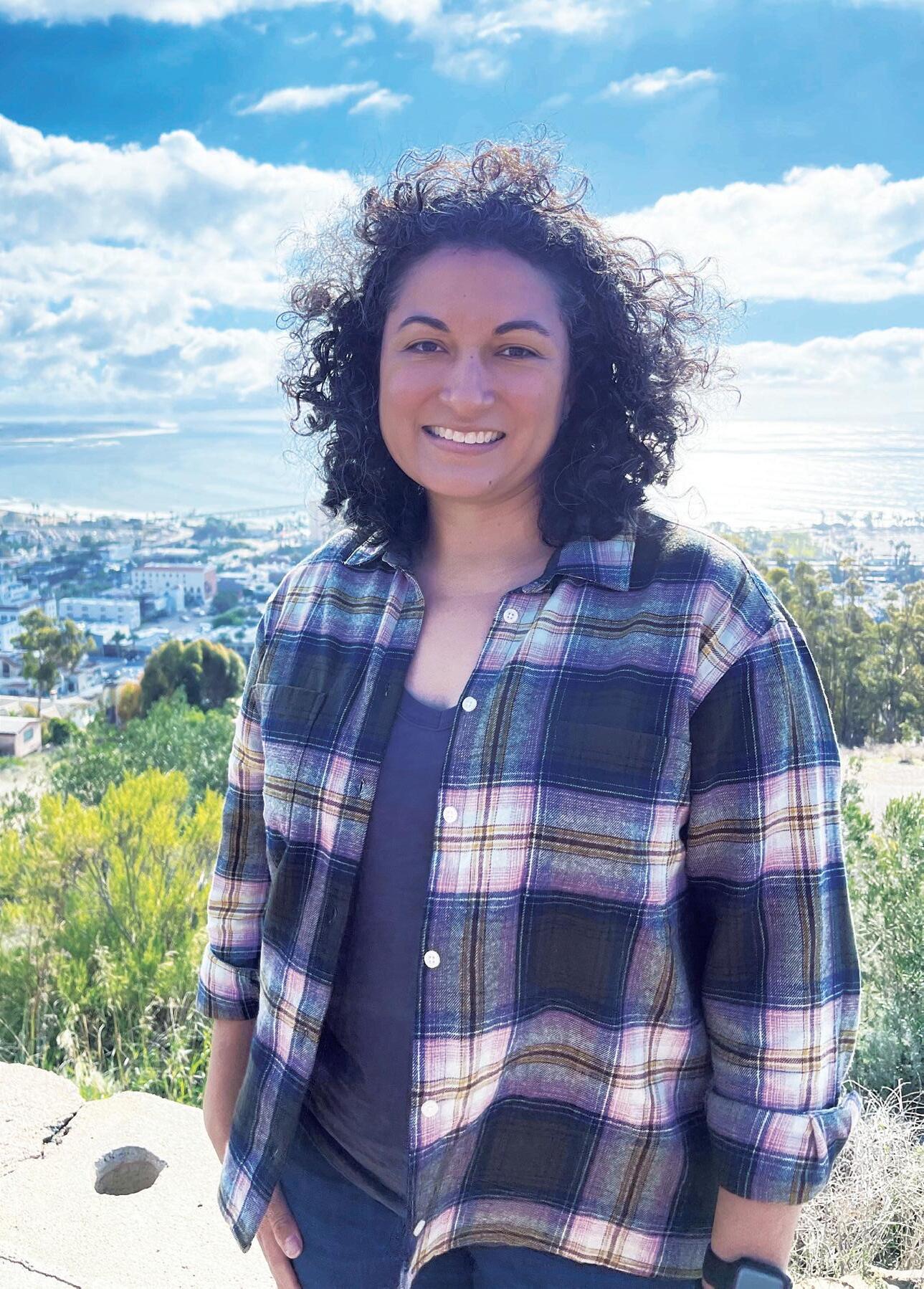
10 California Veterinarian | March–April 2023 MEMBER PROFILE
Inez Del Pino, DVM
CVMA Discusses Economic Survey, Upcoming Bills at Annual Veterinary Leadership Forum
The CVMA’s Board of Governors and House of Delegates held its annual joint Leadership Forum on January 22 in Sacramento. CVMA leaders, including veterinarians and registered veterinary technicians representing both the CVMA Board and House, were in attendance.
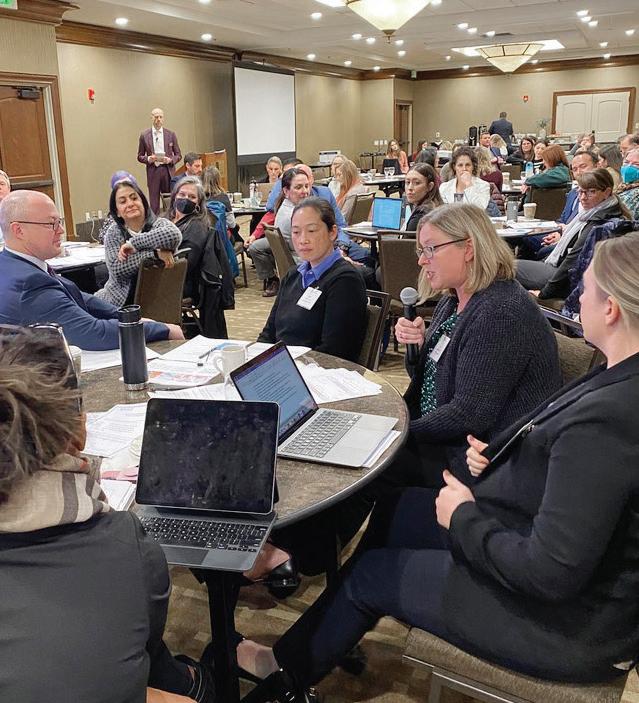
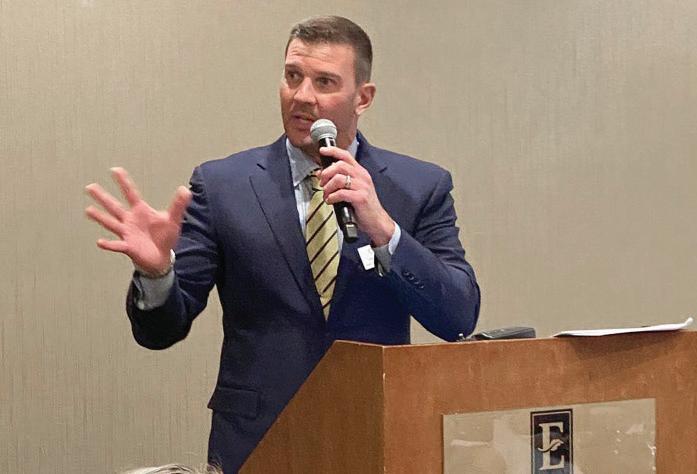
The keynote portion of the meeting concerned the results of the CVMA’s recent Economic Survey, which the CVMA has conducted every three years since 2013. Molly O’Shaughnessy from EMC Research—the vendor with whom the CVMA worked to conduct the survey—led the audience through the survey results and answered questions. Following EMC’s presentation, the attendees broke into small groups to discuss the following questions:
• After reviewing the EMC survey, what do you believe are the issues of greatest concern?
• What do you believe the veterinary profession can do to most effectively address those issues of concern?
• What do you believe the CVMA can do to most effectively address those issues of concern?
Small group discussion ran nearly an hour, after which each group reported on the results of their discussions. The fruits of the joint conversation will help direct the CVMA’s efforts regarding issues of concern in 2023 and beyond.
Also during the Leadership Forum, Dr. Grant Miller, the CVMA’s Director of Regulatory Affairs, led the group in
a discussion on anticipated legislative bills in 2023, as well as possible modifications to the Veterinary Medical Board’s regulations. Specific subjects of presentation and discussion included (a) the significant legislator turnover occurring in 2023, (b) possible 2023 bills on the subjects of declawing, animal physical rehabilitation, the veterinarian-client-patient relationship, and tuition assistance/debt relief, and (c) possible legal changes—in both regulation and statute—that would result in the expansion of registered veterinary technicians’ scope of practice.
The CVMA thanks and appreciates all who participated in the Leadership Forum!
LEADERSHIP FORUM
Dr. Grant Miller, CVMA’s Director of Regulatory Affairs, presents on anticipated legislation in 2023.
11 cvma.net/publications
Thoughtful discussion of the CVMA’s 2022 Economic Survey results.
A Lens into Diversity, Equity, and Inclusion in the Veterinary Profession
Students' Views on Diversity, Equity, and Inclusion
As we continue to explore the many facets of Diversity, Equity, and Inclusion (DEI) in our Unity series, we wanted to hear what veterinary students have to say about the topic. In a short survey, veterinary students from UC Davis and WesternU provided their perspectives on the following questions:
• What does DEI mean to you (definition, experiences, etc.)?
• Why is DEI important (in veterinary medicine and in life)?
• How do you promote DEI at your school?
• How can the veterinary medical community improve DEI?
• Do you have any personal experiences or relevant insights you think would help people better understand DEI in veterinary medicine?
Here is what some had to say:
“For me, [DEI] means not only being accepted, but valued in any environment that I am in. My experiences, my opinions, and my presence matters just as equally and as importantly as everyone else, and that does not change because of my ethnicity, culture, sex, or anything else I may be perceived as. The simple answer? It means being seen.”
“DEI means recognizing that there are differences, celebrating those differences by being respectfully curious about each other's lived experiences, and taking joy in the successes made by everyone. It also means that everyone should make the effort to even the playing field by recognizing disparities and working to balance them out so we are all coming with the same resources and opportunities.”
12 California Veterinarian | March–April 2023 UNITY
Unity
“The diversity of the profession isn't going to change at the drop of a hat. We should work to recognize, respect, and appreciate the differences in our practice and in our clients. Being aware of the language we are using to be inclusive and non-assuming or judgmental is an important start. Recognizing how access to care problems fit in and working to correct those can also help.”
“We are an extremely cost-restricted profession. Veterinary internships and externships are expensive. Vet school is expensive. Even living in Davis is way more expensive than anywhere I've ever lived before. I think this really restricts the people who feel able to apply and attend vet school. You're (most likely) not [going to] get some inner-city kid who has lived in poverty their whole life thinking of applying to vet school when each application costs $120 minimum, and that's a shame.”
“If I understand how someone’s culture views animals in their life, I can be in a better position to make sure that I am best meeting their needs as a veterinarian.”
“DEI to me means understanding and acknowledging that everyone has their own unique life experiences that influence who they are and what they do. […] And because everyone has different challenges to face in life, that we as a global community, as humans, have an obligation to help those in need however we can to make sure they can enjoy freedoms such as housing, food, education, and medical care.”
“Equity is about what we need in order to succeed, not what is fair. Everyone deserves the opportunities and chances to succeed and some need different things compared to others. […] Fairness does not mean that a person with 20/20 vision gets to have glasses too because it is deemed ‘fair’—they do not need them to see, while others may.”
“We, in the vet med field, can pave the path for so many other professions on how to integrate and properly understand DEI, not only in our workplace, but in our society as a whole.”
“We all have a place in speaking for DEI and when DEI is not being upheld. It is important to correct whatever wrongdoing has occurred.”
“It doesn’t matter where you came from or how good your English is, but what matters is that we’re all here in the same field and should lift each other up and learn from each other’s experiences and share what we had to achieve to get here.”
“I believe we are all aware that there is a stereotypical demographic that the profession pulls in, which is by no means wrong, but it is harder for future students and individuals to see it as a viable career when they do not see people of similar backgrounds to them. While the profession is becoming more diverse, it still has a long way to go.”
13 cvma.net/publications
Brushing up on Continuing Education
By Grant Miller, DVM, CVMA Director of Regulatory Affairs
Veterinarians and registered veterinary technicians (RVTs) are mandated to complete specified continuing education (CE) as a condition of licensure renewal in California. The following are the most common CE questions and answers.

Q: What is the CE requirement for California?
A: Veterinarians must complete 36 units (36 hours) and RVTs must complete 20 units (20 hours) of CE during each two-year license renewal cycle. CE courses must be taken from approved providers and meet specified course content requirements. Examples of approved providers include the CVMA, the American Veterinary Medical Association, government institutions,
and courses included in the Registry of Approved Continuing Education (RACE) program through the American Association of Veterinary State Boards (AAVSB), to name a few.
Q: How much CE must be taken live?
A: Thirty units of veterinarian CE and 16 units of RVT CE must be “liveinteractive.” The VMB has clarified that, in order for a course to be considered “live-interactive,” the course instructor must be present throughout the instructional period. The course instructor must be available for interactive dialogue to answer attendee questions. Live-interactive courses may be taken online, provided that the aforementioned requirements are met.
Q: What qualifies as self-study courses?
A: Veterinarians are allowed up to six
units and RVTs are allowed up to four units per renewal cycle of self-study courses. Self-study is a form of orderly learning that does not offer interaction between the licensee and instructor during the instructional period. This self-study includes:
1. Independent study, reading journals, viewing video recordings, or listening to audio recordings. (California Code of Regulations (CCR 16), Section 2085(f))
2. Providing pro bono spay/neuter services at a qualified animal control agency or shelter. (California Business and Professions Code (BPC) 4846.5(b)(2)(B))
Q: Do courses in business management count as CE?
A: Veterinarians may take up to 24 units and RVTs up to 15 units per renewal cycle on courses in business practice management or stress seminars. (CCR, Title 16, Sections 2085.3(e) and 2086.4(e))
14 California Veterinarian | March–April 2023 COMPLIANCE CORNER
Q: Are veterinarians in California required to take CE on the judicious use of antibiotics?
A: Yes. Per BPC section 4846.5(k)(1), veterinarians must take at least a one-hour course on the judicious use of medically important antimicrobial drugs every four years as a condition of licensure.
Q: Are there any CE exemptions?
A: Veterinarians and RVTs are not required to obtain CE for their first license renewal. (BPC section 4846.5(d); CCR, Title 16, Section 2086.1(d)) Also, veterinarians with a university license are not required to complete CE as a condition of licensure renewal. While there was a temporary filing extension in place for a portion of the COVID-19 pandemic, it expired in October of 2021; thus, there are no COVID exemptions currently in effect.
Q: Who enforces CE laws in California?
A: The Veterinary Medical Board (VMB) randomly but routinely audits licensees during license renewal by requiring submission of CE certificates to prove that minimum requirements are met. Failure to provide CE documentation can result in possible administrative action.
Q: Do licensees have to keep records of CE?
A: Yes. Upon completing qualified CE, the provider must issue attendees a certificate of course completion with the information specified in CCR, Title 16, Sections 2085.8 and 2886.7. Licensees are required to retain course completion certificates for a period of four years pursuant to CCR Title 16, Sections 2085.9(b) and 2086.8(a). The AAVSB RACEtrack online CE tracker is free and easy to utilize. Users who upload their completed CE courses and certificates will benefit from a streamlined license renewal process, as the VMB has access to RACEtrack to verify CE.
More information about CE may be accessed at the VMB’s website: (vmb.ca.gov/licensees/continuing_ed.shtml) or by visiting the CVMA’s website (cvma.net) and clicking on the Learning tab.
This article is for informational and general educational purposes only. It is not intended to take the place of legal advice nor should it be considered as a legal interpretation. Although significant effort has been made to ensure the accuracy and completeness of the information at the time of publication, the CVMA shall not be responsible for any errors or omissions, or any agency’s interpretation, application, or enforcement of the information presented herein.
WHAT IS YOUR VETERINARY PRACTICE WORTH?
Tom McFerson is one of the few CPAs serving the veterinary community who is Accredited in Business Valuation ( ABV ), by the American Institute of Certified Public Accountants .
Why Talk to Us First?
Our expertise, experience, and reputation in the veterinary industry for over 44 years gives us the edge. We helped pioneer the standards highly regarded by lenders, catering to veterinarians and their industry.
Gatto McFerson can help determine your need for a valuation or an appraisal.
BUYING, SELLING, EXIT STRATEGY, BUY-INS, LITIGATION, ESTATE PLAN, DIVORCE, ETC.

SCHEDULE A CALL
15 cvma.net/publications
C M Y CM MY CY CMY K gatto-half-page-cvma-012523.pdf 1 1/25/23 2:01 PM
CVMA 2022 Economic Survey Report—Part 3
The CVMA’s Economic Task Force was convened to study and report on economic trends impacting the veterinary industry in California. The Task Force first partnered with EMC Research in 2013 to conduct an online survey of California veterinary professionals and has conducted surveys every three years since to follow trends in the industry over time. The fourth iteration
of the survey was conducted in July and August of 2022 and received 1,333 total responses, including 923 responses from DVMs and 410 responses from RVTs.
Responses from DVMs can be compared to the 2019, 2016, and initial 2013 studies conducted by EMC Research and the CVMAs Economic Task Force, and responses from RVTs can


be compared to the 2019 and 2016 studies. Due to rounding, as well as some questions allowing for multiple responses to be selected, percentages may not add up to exactly 100%.
This last article—the third in this series exploring the results of the survey— covers student debt, how those in the field view their jobs, and optimism about the future of the industry.
*As used herein, “DVM” is shorthand for licensed veterinarians, recognizing that different schools use different designations for their veterinary degrees.
This survey was administered and aggregated by EMC Research.
16 California Veterinarian | March–April 2023 RVT NEWS
ECONOMIC SURVEY
Educational Debt
The percentage of DVMs reporting no student loan debt continues to rise, though the percentage of DVMs reporting more than $250,000 in debt has also increased. Among those surveyed, 15% report over $250,000 in student debt, up 1% from 2019 and 5% from 2016. The proportion of DVMs with no student loan debt has increased by 3%, from 20% in 2019 to 23% in 2022, and the proportion of those with education debt below $30,000 has stayed steady at 14% in both 2019 and 2022.
The amount of DVMs reporting that student loans are a major burden for them has decreased by 9% since the 2019 survey. While student loan payments are still a major burden for 30% of respondents, the amount of those reporting that it is a burden is the lowest since EMC began this survey in 2013.
indicate whether you agree or disagree with the following statement: Student loan payments are a major burden for me.
educational debt (including debt from undergraduate school) upon completing veterinary school?
RVT student loan debt reporting is somewhat more consistent over the years than DVM reporting, with approximately four-in-ten RVTs consistently indicating they had no educational debt on completing veterinary technician school. Approximately one-third (28%) said they graduated with more than $20,000 in student loan debt, nearly identical to the 2019 survey.
RVTs are feeling less burdened with student debt than DVMs, with 27% reporting they feel that student loan payments are a major burden for them. As with DVMs, RVTs feeling that student loans are a burden have also decreased, down from 32% in 2016.
Please indicate whether you agree or disagree with the following statement: Student loan payments are a major burden for me.
17 cvma.net/publications CVMA INSURANCE SERVICES
None 19% 18% 20% 23% $1-$29,999 24% 19% 14% 14% $30,000-$79,999 22% 19% 18% 20% $80,000-$149,999 17% 18% 16% 14% $150,000-$249,999 13% 16% 17% 14% $250,000+ 5% 10% 14% 15% 2022 2019 2016 2013
What was your total
2022 2019 2016 38% 41% 42% None 38% 30% 30% $1-$19,999 24% 29% 28% $20,000+ 2022 2019 2016 2013 30% 39% 41% 35% Please
Total Agree 2022 2019 2016 27% 29% 32%
What was your total educational debt (including debt from undergraduate school) upon completing veterinary technician school?
Total Agree DVMs RVTs
Job Outlook
More than four-fifths of California DVMs (81%) report being satisfied with their current job, with 39% saying they are very satisfied. Since EMC began conducting the survey in 2013, at least eight-in-ten DVMs have reported being satisfied with their job, but both overall satisfaction and those saying they are “very satisfied” have decreased slightly since 2019.
When asked about specific job factors, DVMs report consistent or greater satisfaction with nearly every factor of their job compared to the 2019 survey results. Satisfaction with benefits has increased the most, with 76% indicating they are satisfied—7% higher than in 2019 when 69% said they were satisfied. A third (35%) of DVMs said they were “very satisfied” with their benefits, up
from 30% in 2019.
18 RVT NEWS California Veterinarian | March–April 2023 ECONOMIC SURVEY
5%
2022 2019 2016 2013 81% 85% 83% 86% In general, how satisfied are you with your current job? Very Satisfied Somewhat Satisfied 39% 37% 48% 39% 46% 43% 43% 42% In general, how satisfied are you with each of the following: Very Satisfied Somewhat Satisfied 66% 65% 73% 72% 80% 80% 79% 77% 76% 69% 2022 2019 2022 2019 2022 2019 2022 2019 2022 2019 Work-Life Balance Work Environment Salary Benefits Opportunities for Professional Growth 29% 24% 37% 36% 38% 34% 35% 35% 35% 41% 40% 30% 44% 46% 31% 45% 42% 38% 40% 37% DVMs DVMs
A majority of RVTs report satisfaction with their current jobs. Twenty-nine percent report they are “very satisfied” with their jobs, reflecting a slightly larger percentage decrease (since 2019) in satisfaction among RVTs than the accompanying decrease among DVMs.
In general, how satisfied are you with your current job?
RVTs are generally less satisfied with specific factors of their jobs than DVMs. Work-life balance and opportunities for professional growth saw a two-percent rise in satisfaction, though the percentage of RVTs reporting they are “very satisfied” with opportunities for professional growth decreased by two percent. Satisfaction with salary remained consistent, though satisfaction is lowest with salary than with any of the other categories, with just over half (52%) saying they are “very” or “somewhat” satisfied. A strong majority (74%) of RVTs do, however, feel satisfied with how they are being utilized in their role.
In general, how satisfied are you with each of the following:
19 cvma.net/publications CVMA INSURANCE SERVICES
2022 2019 2016 79% 84% 83%
Very Satisfied Somewhat Satisfied 29% 36% 36% 50% 48% 48%
Very Satisfied Somewhat Satisfied 64% 62% 64% 62% 68% 71% 52% 52% 67% 65% 74% 2022 2019 2022 2019 2022 2019 2022 2019 2022 2019 2022 Work-Life Balance Work Environment Salary Benefits Being Utilized to Full Extent of Education and Training Opportunities for Professional Growth 24% 22% 24% 40% 36% 26% 23% 13% 29% 38% 37% 37% 28% 37% 39% 37% 15% 45% 43% 29% 40% 40% RVTs RVTs
Veterinary Industry Satisfaction
While DVMs and RVTs are reporting satisfaction with their current jobs, they do not view the veterinary industry as healthy in the long-term. Satisfaction with the health of the veterinary industry has decreased among both groups over the last three years. In 2019, 48% of DVMs and a similar percentage of RVTs (51%) said they were generally satisfied with the health of the veterinary industry, but in 2022 only a third (32%) of DVMs and a quarter (25%) of RVTs say they are satisfied with the industry’s health.
In general, how satisfied are you with the health of the veterinary industry?
Additionally, only 41% of DVMs and 34% of RVTs report that they would recommend a job in the veterinary industry to a friend or family member.
I would recommend a veterinary career to a friend or family member.
20 California Veterinarian | March–April 2023 RVT NEWS ECONOMIC SURVEY
2022 2022 2019 2019 32% 48% 25% 51%
Satisfied Very Satisfied Somewhat Satisfied Somewhat Satisfied 7% 4% 10% 42% 22% 8% 43% 26% DVMs RVTs Agree 41% Agree 34%
Very
Somewhat 30% Somewhat 30% Strongly
Strongly
RVTs
11%
3% DVMs
When presented with questions about other aspects of the veterinary industry, DVMs have mixed responses. Seventy-seven percent of DVMs express that they are confident they will make a good living in the veterinary profession, but almost onethird (31%) are considering leaving the profession entirely. Just over half (54%) of DVMs say that regulatory requirements are a burden on them.
Please indicate whether you agree or disagree with the following statements.
I am confident I will be able to make a good living in the veterinary profession
The growth of corporate veterinary practices is good for the veterinary industry
California's regulatory requirements are a major burden for veterinary practices
I am considering leaving the veterinary profession
In contrast, RVTs are more pessimistic. Only 23% express confidence that they will be able to make a good living in the veterinary profession, while almost half (44%) say they are considering leaving.
I am confident I will be able to make a good living in the veterinary profession
The growth of corporate veterinary practices is good for the veterinary industry
I am considering leaving the veterinary profession
Conclusion
The tumult of the preceding three years does appear to have had an impact on views of the industry overall, with hiring becoming an increasing challenge, and both DVMs and RVTs expressing less optimism about the industry’s future. It is important to note that, while 70% of DVMs do not feel the growth of corporate veterinary practices is good for the industry, only 30% express interest in owning their own practice. In some mitigation of that pessimism, overall personal job satisfaction remains strong, possibly in part due to an increase in pay and benefits and a decrease in student loan burdens for both DVMs and RVTs.
While there are challenges ahead, continuing to build on the positives is key to making the veterinary profession a viable long-term career option in California, which in turn could help alleviate key concerns like staffing and staff burnout. Overall, the goal of the industry should be to use the financial and beneficial improvements described above to demonstrate that the veterinary industry is a good place to have a long, fulfilling, and financially stable career.
21 cvma.net/publications CVMA INSURANCE SERVICES
Total Agree RVTs
23% 24% 44%
DVMs
Total Agree
77% 17% 54% 31%
CVMA Proposes RVT Scope of Practice Expansion to Help Address Access to Veterinary Care Issue
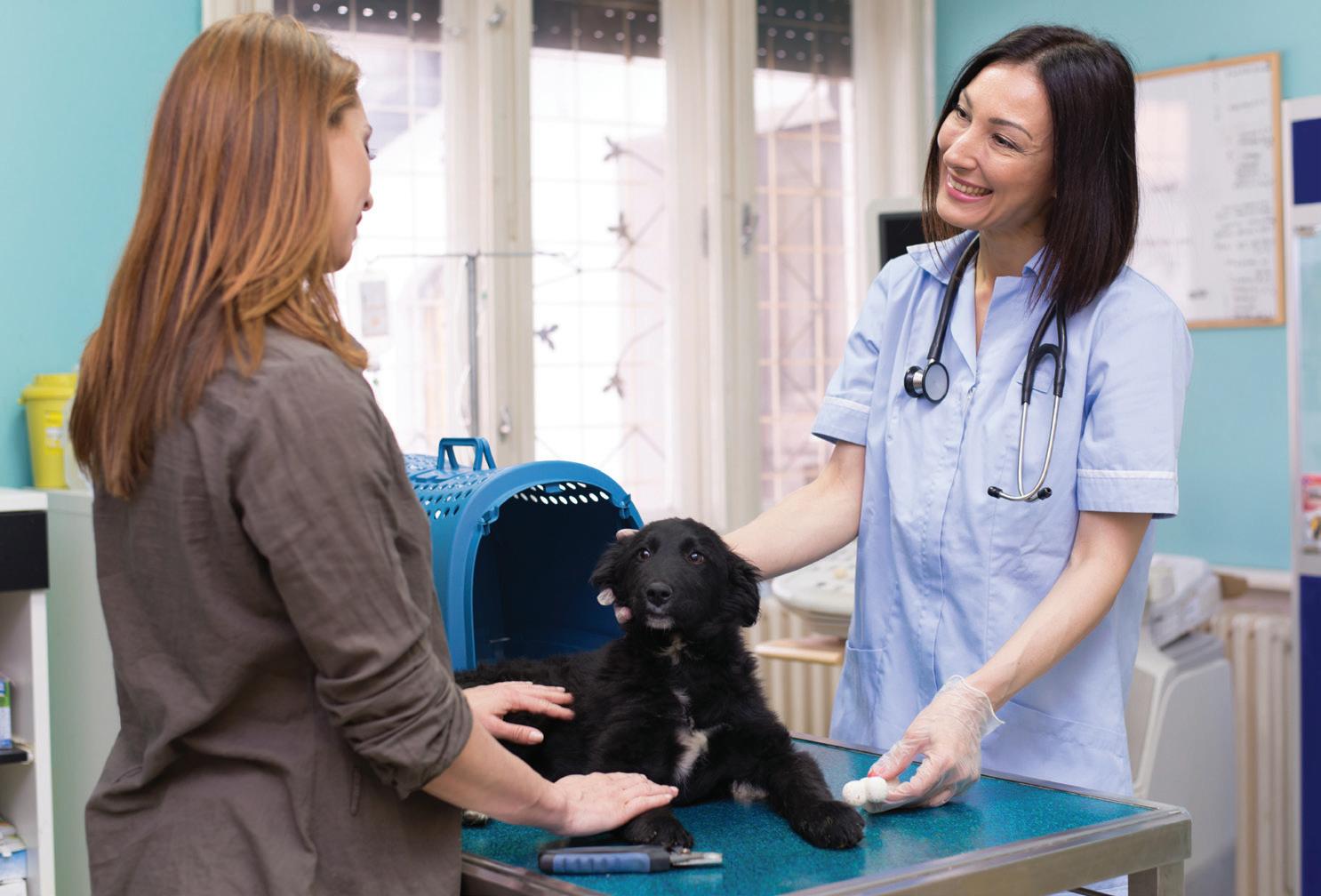
Medical Board (VMB) to consider the proposal for a rulemaking (regulatory) process. In turn, CVMA staff compiled significant supporting data for the request and submitted both the request and the supporting data to the VMB in late 2022.
Aprominent study1 published by the University of Tennessee College of Social Work found that one out of four (28%) pet-owning households in the United States experiences barriers to veterinary care, with the cost of care being the primary impediment.
In 2021 and 2022, the CVMA convened a task force of veterinarians and registered veterinary technicians (RVTs) with specific expertise to address the issue of Access to Veterinary Care. The task force’s work was approved by the CVMA’s Board of Governors in 2022 and culminated in a position statement and a list of action items for the CVMA to pursue in an effort to do its part to address the access issue. Both of those resources are available here: cvma.net/news-now/access-toveterinary-care/.
The list of action items includes “Expanding the Role of RVTs.” This topic was sent to the CVMA’s Registered Veterinary Technician Committee in
2022 for analysis and recommendation. The RVT Committee is composed of RVTs in multiple sectors of the veterinary profession from across California. The RVT Committee did a deep dive into RVT education, core competencies, skills, and abilities and determined that RVTs possess adequate knowledge and skill to act as an agent of the veterinarian to establish a VCPR for the specific purposes of:
1. Administering vaccines; and
2. Performing preventative procedures for parasite control.
This proposal was then presented to the CVMA’s House of Delegates (approximately 75 veterinarians and RVTs from throughout California) and the CVMA’s Board of Governors in June of 2022 for review and discussion, with resulting widespread support for the measure. Accordingly, the Board of Governors directed staff to submit a request to the California Veterinary
The VMB—which also has its own Access to Veterinary Care subcommittee working on improving consumer access to veterinary care—considered the CVMA’s request and the supporting data. Finding the proposal to be well-taken, the VMB then drafted regulatory language to add to the California Veterinary Medicine Practice Act, and presented that language to its voting board on January 25, 2023. The VMB’s voting board—comprised of veterinarians, an RVT, and public members—unanimously voted to approve the introduction of the proposed regulations into the rulemaking process.
The VMB will post a 45-day notice for public comment on the proposed regulations in the next couple of months. Veterinary professionals and the public are encouraged to submit substantive comments.
The CVMA will continue to actively represent the veterinary profession on this and other important issues at the VMB and will alert the profession to relevant developments through both its CVMA Weekly e-newsletter and this magazine.
Sources
1University of Tennessee College of Social Work. (2018). Access to Veterinary Care: Barriers, Current Practices, and Public Policy. https://pphe.utk.edu/wp-content/ uploads/2020/09/avcc-report.pdf.
22 California Veterinarian | March–April 2023 RVT NEWS
PHOTO: ISTOCK
Communicate with Your New Employees and Keep Them Safe


Veterinarians must wear many hats to keep their practices running smoothly. One important aspect of running a successful practice is onboarding new hires. How employees acclimate to their new job and integrate into the company culture is an important determinant of whether they will be effective contributors. A key component of onboarding is the New Hire Safety Orientation (NHSO). Ensuring that employees understand the hazards of their jobs and are equipped to effectively mitigate them helps improve job satisfaction and decrease risk of workplace illness or injury.
One approach to developing an effective NHSO process is to create a checklist to make sure important topics are covered during the first day, first week, and first 30 days. While some checklist items will vary depending upon the practice and the employee’s role, some core topics should be on every checklist.


Start by letting the new employee know the practice is committed to providing a safe workplace and assuring them that, should they become ill or injured on the job, they are covered under workers’ compensation insurance and will be taken care of. Emphasize the importance of immediately reporting any injuries, no matter the severity. Even minor injuries, including small scratches and bites, can become serious when not treated promptly. California requires employers to provide new hires with its Time of Hire Pamphlet no later than the end of their first pay period. The CVMA offers members new hire pamphlets at a discounted rate, which can be found in the CVMA store at cvma.net under the Resources tab.
A logical next step is to review the Injury and Illness Prevention Program (IIPP) for the practice. All California employers must have a current written IIPP and other
OSHA-required plans, such as the Hazard Communication Plan, Fire Prevention Plan, Emergency Action Plan, COVID-19 plan, and more. CVMA members can subscribe to the CVMA Guide to Cal/OSHA Compliance. The interactive guide takes you step-by-step through creating a custom written safety plan for your practice that meets the Cal/ OSHA requirements. It also assists with implementing your plan, employee training, and recordkeeping. For more information, visit cvma-inline.net/regulatory-guide/.
Other pertinent topics to include on your NHSO checklist are:

• Animal Handling and Restraint—Bites and scratches are the most common injuries in veterinary practices, followed by strains/sprains from lifting and restraining animals. Describe your practice’s procedures and Personal Protective Equipment (PPE) to minimize exposure to these injuries.
• Sharps/Medical Waste Handling— Containers should be labeled, utilized, and removed from the premises in accordance with California laws.
• Infection Control Practices—Include hand washing and OSHA’s regulation prohibiting the consumption of food and drink where work functions are taking place.
• Radiation Safety—Provide guidance for the safe use of radiation for imaging in your practice. The CVMA offers members the Radiation Compliance Kit, which includes required postings, the "Caution: X-Ray" Sign, and Radiation Safety training materials as well as detailed instructions on how to implement, document, and audit a radiation compliance program. This can be found at cvma.net under the Resources tab by clicking on Products and searching for "radiation compliance."
• First Aid—Show the employee where the first aid kits are located and explain what actions employees should take if they require first aid.
• Reporting Emergencies—Explain who and how employees should call for help.
• Emergency Evacuation—Provide a link or hard copy of evacuation routes for your building. Walk the employee through primary and secondary routes. Point out the designated assembly area. Discuss special evacuation plans for employees with disabilities.
• Workplace Violence Policy—Provide your practice’s policy for a safe and secure work environment that has no tolerance for harassment, intimidation, threats, or acts of violence in the workplace.
Safety Committees are optional, but can be a good way to increase attention on workplace safety and facilitate employee involvement, especially in larger practices. Once implemented, there are specific requirements that safety committees must meet per California Labor Code, General Industry Safety Orders, Section 3203(c).
Should you have questions or need assistance with developing a New Hire Safety Orientation checklist for your practice, contact PEI Risk Advisors at safety@peiwc.com or 888.472.9001.
23 cvma.net/publications CVMA INSURANCE SERVICES
SHUTTERSTOCK ILLUSTRATION
SAFETY ORIENTATION PREFERRED EMPLOYERS
Saving Grace
By S. Kwane Stewart, DVM, 2023 Pacific Veterinary Conference Keynote Speaker


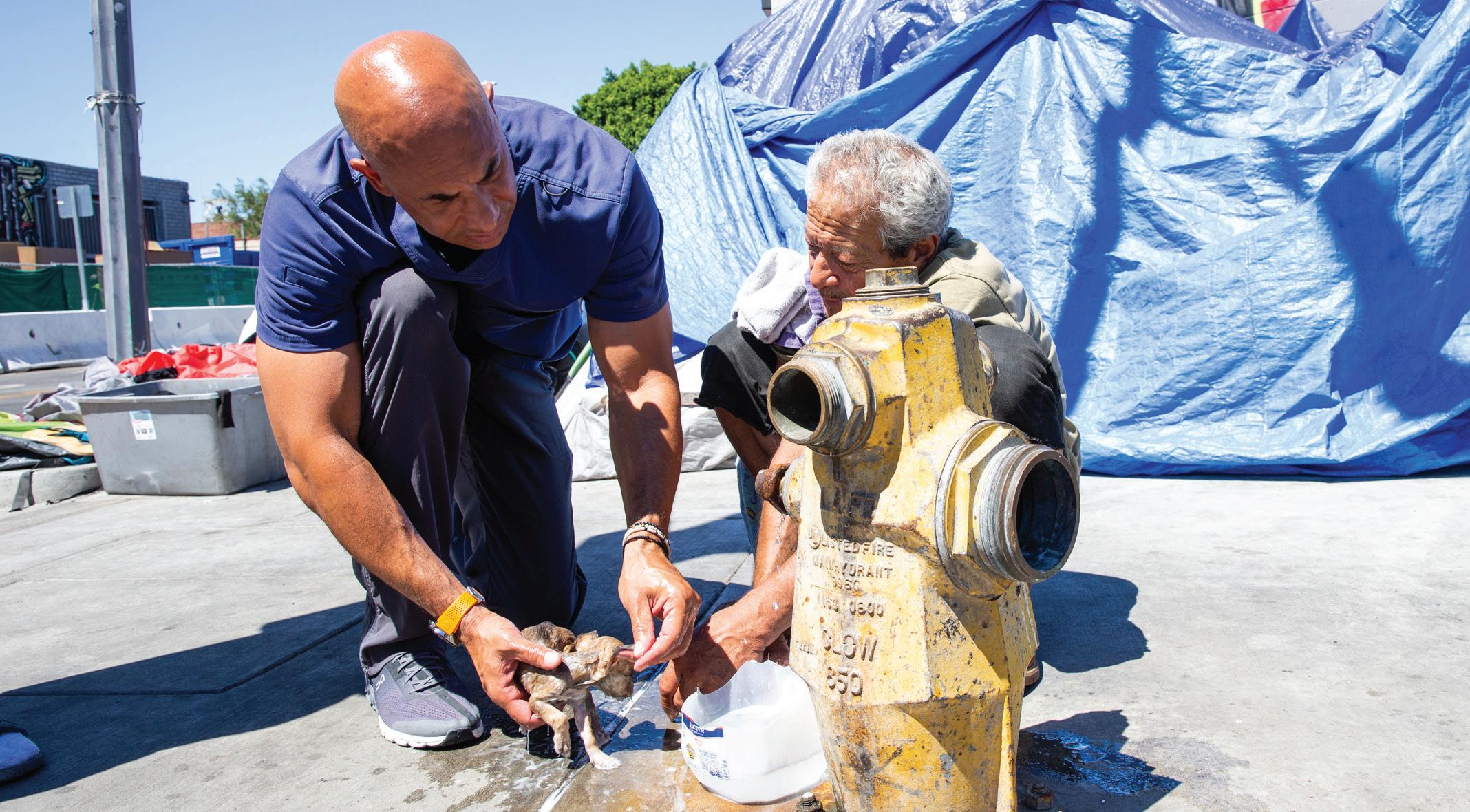
In my 25 years in this profession, I’ve encountered just about every disease and illness. But then again, you anticipate that if you do this long enough. What I was quite naïve about are the many different and unusual circumstances of the pet parents I would also come to know.
I’m going to assume that most everyone reading this owns (or has owned) a pet. I’m also going to assume that, if you’ve had pet companions long enough,





you’ve experienced a moment when you couldn’t afford care.
For me, that was during college—the “shoestring” years, as I like to say. My Doberman, Baron, and I were always just scraping by. But he made those years in undergrad some of my best. He served as daily inspiration to study instead of party, reminded me that sacrifice and hard work will be a lifelong reality, and motivated me to keep the passion and fire burning to realize my dream—all things necessary to gain entrance into vet school. Without ever saying a word or giving
PACVET KEYNOTE SPEAKER
24 California Veterinarian | March–April 2023
PHOTO BY CHRIS MORTENSON
a “dad speech” or “mom lesson,” that furry, four-legged creature embodied all those things just by being.
But during my fourth year, while I was in class, one of my roommates left the gate open and Baron wandered into the street and was struck by a car. We rushed him to the closest vet and he was quickly stabilized, though not without serious injury. His hind leg and hip suffered multiple fractures, and without plates and fixators he would have to be euthanized. My budget afforded macaroni and sawmill dog food, not a $2,000 procedure (this was 1992). But that’s when it happened: Between the generosity of the veterinarian and donations from my friends, Baron got the care he needed, healed beautifully, and eventually sat shotgun as we drove to Colorado State for day one of vet school and the rest of our lives.
So, let me ask you…because I didn’t have the resources to properly care for Baron medically, was I undeserving of him? That is the judgment I once (regrettably) cast on the unhoused. I would observe them suspiciously at times while they panhandled with a dog by their side. Why would they take on the responsibility of a pet when they can barely care for themselves?
My work on the streets is rather simple. I pack a bag of medical goods (usually consisting of vaccines, preventatives, antibiotics, and anti-inflammatories) and walk dense urban areas searching for unhoused folks with pets. Because this is usually a first encounter and an unusual, even awkward scenario, I announce myself from afar, saying, "I'm a veterinarian. My name is Kwane Stewart. And I'm here to offer free medical care to your pet(s) if you would like that?" Usually within moments, a feeling of
trust and gratitude is established (maybe my favorite part) and I immediately take out my stethoscope, kneel down, and get to work!
My journey on the streets has taught me many things, but none more important than the beauty (and for some, necessity) of pet ownership. These are not just companions but a lifeline; their last anchor to society and daily hope for a normal life. I’ve come to respect these remarkable pet parents in some moments more than my paying clients. How many of you would sacrifice your only meal of the day to feed your dog, or refuse housing that would shield you from the rain for a night if they did not accept your dog? And how many of us can say that we spend almost every hour of every day with our pet? These unhoused individuals have, in fact, taught me that they may just be the most deserving of pet companionship.
What many don’t know is the service of caring for this population of people and pets saved me. At a time when I was despondent and experiencing burnout and depression, and on the verge of quitting the profession altogether (a story for another day), I found this work—or perhaps it found me—and showed me I had a little more to do on this planet. After 12 years of walking the streets, saving, treating, laughing, crying, sharing stories, and making friends, I now understand what that seven-year-old boy who dreamed of being a vet was meant to do. I’m not a believer in destiny, but I’m starting to come around.
As a suggestion or perhaps a challenge to all my colleagues: I would have you consider granting care to one unhoused person and pet on an interval that fits your budget. You’ll likely find the reward
is immense. And if doing so has a similar effect on you as it did on me, you may find that this kind of care also wakes up that same young child in you that believed one day they would change the world. An act of kindness can change someone’s day, but a gesture of kindness may also change someone’s life. It did for me.
The focus of Dr. Stewart’s keynote presentation at the 2023 Pacific Veterinary Conference will be on the power of giving back, and how veterinary professionals hold the unique gift of showing kindness.
Dr. Kwane Stewart graduated with his DVM degree from Colorado State University in 1997 and has been practicing veterinary medicine for 25 years. His career has spanned most aspects of the profession, including private practice, emergency, shelter medicine, nonprofit work, and now as Netflix’s veterinarian. He is considered one of the foremost authorities on protecting animals in film. But it was his time as a county veterinarian in a struggling California town during the recession that placed him on his most important path—helping the pets of people experiencing homelessness or financial hardship. Today, his work and charitable organization Project Street Vet seeks to provide as much free veterinary care to this vulnerable population as possible… and spread some goodwill along the way.
25 Visit the Pacific Veterinary Conference online at PacVet.net
20
June 9–12, 2023




23 PacVet
Long Beach, CA

4 Days | 200+ Sessions | 15 In-Person Tracks
3 Virtual Tracks | 2-Day Vet Expo | 1 Vacation Destination


Hosted by the California Veterinary Medical Association
#PacVet2023
| March–April 2023
Advanced Monitors
AKC Reunite MICROCHIPS
American Regent Animal Health
AmeriVet Veterinary Partners

AnimalBiome Veterinary
Anivive Lifesciences, Inc.
Antech
Avant Wellness
Avid Identification System, Inc.
Banfield Pet Hospital
Bank of America Practice Solutions
BCP Veterinary Pharmacy
Blue Natural Veterinary Diet
Boehringer Ingelheim Animal Health
California Animal Rehabilitation (CARE)
California Veterinary Emergency Team (CVET)
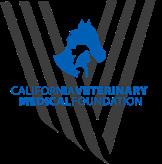
Capstone Financial Group
CareCredit
Cat and Dog Modern Chronos, LLC
CNA
Companion Pet Partners
Cresilon-VETIGEL
Crown Seating LLC
DNTLworks Equipment Corp.
Doctor Multimedia
Dragon Veterinary
DVM Consulting and Recruiting
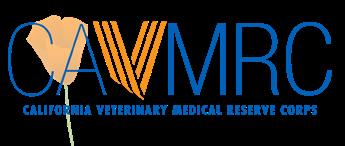
Edge Life Technologies, LLC

Elanco Animal Health
Employers Choice Screening
Epicur Pharma
Erchonia Corporation
Esaote North America
Ethos Veterinary Health
ezyVet
First Financial Bank
GlobalVetLink
Golden Pet Rx
Hill's Pet Nutrition
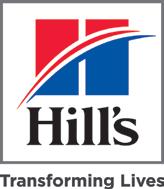
IDEXX
In Diagnostic, Inc.
JadeVets Inc.
Jorgensen Laboratories, LLC
JustFoodForDogs
Karl Storz Veterinary Endoscopy
K-Laser
Lap of Love Veterinary Hospice
Lenity Vet Specialists and Emergency Care
Live Oak Bank
MAI Animal Health
Medical Illumination
Medical Pet Shirts International
Merck Animal Health
Mesamedical Co., Ltd.
MiDOG LLC
Midwest Veterinary Supply
Mixlab
Mobile Animal CT Moichor

Multi Radiance
MWI Animal Health
Nationwide Pet Insurance
Nutramax Laboratories Veterinary Sciences, Inc.
Nuvodia
Omni Practice Group
Oncura Partners Diagnostics
Pacific Professionals, Inc.
Pawlicy Advisor
PawPals
Pawprint Oxygen
PetDx

PetVet Care Centers
Preferred Employers Insurance
Radiocat
rauhaus freedenfeld & associates (rfa)
Roo
Rose Micro Solutions
Samsung Veterinary Ultrasound
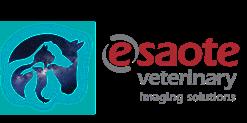
Schultz Technology

Sedecal USA, Inc.
Simmons & Associates Pacific, Inc.
Snyder Mfg. Co.
Solutions by Design, Inc.
Standard Process Inc.
Talkatoo
Thrive Pet Healthcare
Torigen Pharmaceuticals
Tuttnauer USA
Universal Imaging
VDI Laboratory
VetCor
Vetdiet
Veterinarian Recommended Solutions
Veterinary Emergency Group
Veterinary Insurance Services Company (VISC)
VetnCare
VetSpecs, Inc.
Victor Medical Company
ViziSites
WEAVE
Wedgewood Pharmacy
West Coast Pet Memorial
Western Veterinary Partners
Zoetis
Zomedica
27 Visit the Pacific Veterinary Conference online at PacVet.net SAPPHIRE EMERALD DIAMOND ThankYou TO OUR 2023 CONFERENCE SPONSORS! TOPAZ
GlobalVetLink
2-DAY VET EXPO!
Look What's in Store for You!
BEGIN YOUR PACVET EXPERIENCE WITH AN INSPIRATIONAL MESSAGE FOR ALL!
CVMA Keynote Presentation, Friday
PacVet is proud to showcase Dr. Kwane Stewart and his presentation “The Power of Giving Back: How WE Hold This Unique Gift!” Dr. Stewart graduated with his DVM degree from Colorado State University in 1997 and has been practicing veterinary medicine for 25 years. His career has spanned most aspects of the profession, including private practice, emergency, shelter medicine, nonprofit work, and now as Netflix’s veterinarian. He is considered one of the foremost authorities on protecting animals in film. But it was his time as a county veterinarian in a struggling California town during the recession that placed him on his most important path—helping the pets of people experiencing homelessness or financial hardship. Today, his work and charitable organization Project Street Vet seek to provide as much free veterinary care to this vulnerable population as possible…and spread some goodwill along the way.

28 California Veterinarian | January–February 2023 PACVET KEYNOTE SPEAKER
PACVET TRACKS—CHOOSE YOUR CE PATH Attend these tracks in person or live, online! Small Animal Medicine 1 Small Animal Medicine 2 Technician In-person attendance only Small Animal Surgery Avian/Exotics Diversity, Equity, and Inclusion Equine Hobby Animal
Medicine
Management
Medicine
National Veterinary Accreditation Program and APHIS-Approved
Training Wellness For full information on topics, sessions, speakers, and track schedules, visit the CE Program tab at pacvet.net. March–April 2023
Integrative
Practice
Shelter
USDA’s
Supplemental
2023 TOPICS BY TRACK CONTINUED
SPONSORED LABS AND SYMPOSIA

Sponsored Symposia
PetDx Symposium

Rachel Venable, DVM, MS, DACVIM (Oncology)
• Recent Advances in Veterinary Oncology: Updates Every General Practitioner Should Know
• An Internist, a Vet, and a Tech Walk into an Exam Room: Liquid Biopsy in Practice
• Is It Cancer? Use of a Blood Test to Aid in the Diagnosis of Cancer in Dogs
Omni Practice Group Symposium

Rodney Johnston, MBA, CMA
• Maximize Your Veterinary Practice Transition
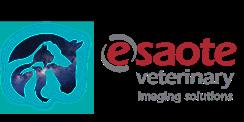
• Selling to a Corporate—What to Know
• What Happens if You Sell Your Practice Mid-Career?
Karl Storz Veterinary Endoscopy Symposium
Justin Ganjei, DVM, DACVS-SA
Jarrod Moss, DVM
• MIS and Rigid Endoscopy for the General Practice
• GP Applications of MIS Laparoscopic Surgery: Top 4 Uses
• GP Applications of Rigid Endoscopy: Rhino, Cystoscopy, and Otoscopy
• Value of Endoscopy from a General Practitioner’s Practice
Zomedica Symposium

Robin Downing, DVM, MS, DAAPM, DACVSMR, CVPP, CCRP Deborah Greco, DVM, Ph.D., DACVIM
• The Future Is Now: The Science (Not Science Fiction) of Today's Pain Management
• Canine Hypothyroidism—New Tools to Make an Accurate Diagnosis
For full information and to register for the labs and symposia, visit pacvet.net.
Reserve your space before they sell out!
Sponsored Labs
Universal Imaging Beginner Ultrasound Lecture Lab
Georgette Goorchenko, DVM, MS, DACVR
• Basic Abdominal Ultrasound Beginner Lecture/Lab
$425 additional registration fee required. Lecture and lab included. Limited to 20 registrants (DVMs only).
Esaote North America Ultrasound Lecture Lab
Katie Moore, Small Animal Sonographer and Trainer
• Intermediate/Advance Abdominal Ultrasound Lecture/Lab
$425 additional registration fee required. Lecture and lab included. Limited to 20 registrants (DVMs only).
29 Visit the Pacific Veterinary Conference online at PacVet.net
29
OUT
SOLD
THREE WAYS TO REGISTER
Online
Mail
FULL CONFERENCE REGISTRATION
Full conference registration for veterinarians, practice managers, veterinary technicians, and veterinary staff includes:
• CE sessions
• Vet Expo admission
• Continental breakfast (all four days)
• Complimentary lunches and breaks in the Vet Expo (Saturday and Sunday)
• Coffee breaks
• Evening events
• Conference bag
• Conference app

• Access to all lecture notes on PacVet.net and the mobile app
Go to PacVet.net for information on:
• Staff group registration
• Discount practice team registration
• Sponsoring a student
• Guest badges
• Cancellation policy
• Exhibit hall-only registration
Venue
Long Beach Convention Center
100 South Pine Avenue
Long Beach, CA 90802
Host Hotel
Hyatt Regency Long Beach

200 South Pine Avenue
Long Beach, CA 90802
Phone: 562.491.1234 | Reservations: 877.803.7534
Online Hotel Reservations
Visit PacVet.net to make your hotel accommodations
Early-bird registration (available through March 27) accesses up to $70 in savings based on onsite veterinarian full conference registration.
PACVET KEYNOTE SPEAKER
Register
The quick and easy way to register and pay by credit card! Visit PacVet.net.
Fill out the registration form on the next page and mail or fax to us with payment. Call 800.655.2862
FOR THE 2023 PACIFIC VETERINARY CONFERENCE
30 California Veterinarian | March–April 2023
CONFERENCE HOTEL AND VENUE 20 23 PacVet
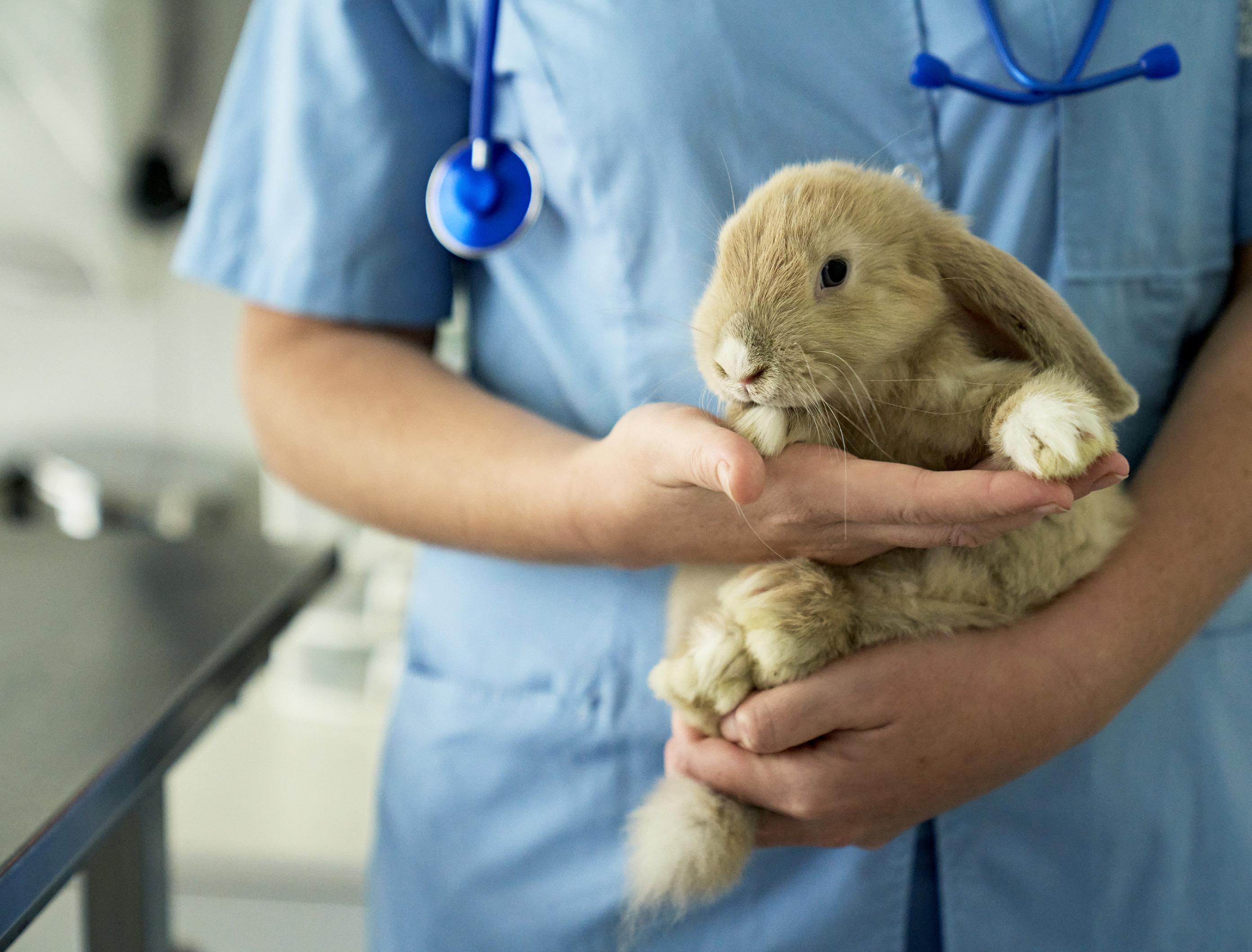
31 Visit the Pacific Veterinary Conference online at PacVet.net visc-ins.com VISC is a wholly owned subsidiary of the California Veterinary Medical association | CA Lic. #0F64180 VISC is proud to be the Diamond Sponsor of PacVet 2023! Visit us in booth number 223. You know their special needs. We know yours.
Navigating Medical Leave in the Workplace
By Jizell Lopez, Wilke Fleury LLP, 2023 Pacific Veterinary Conference Speaker
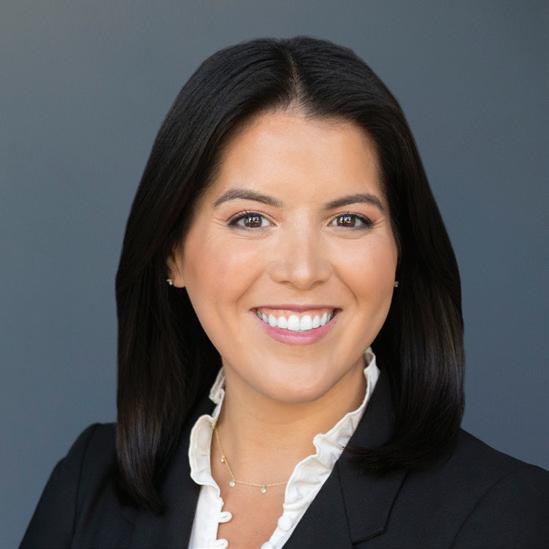






Complex state and federal laws provide employees with certain rights and options during medical leave, including pregnancy leave. It is the employer’s responsibility to comply with legal medical leave requirements and ensure an easy transition for a medical concern an employee may face.

Administered by the U.S. Department of Labor, the Family Medical Leave Act (FMLA) provides job-protected leave to an employee who is absent from work because of the employee’s own serious health condition or to care for specified family members with serious health conditions, as well as for childbirth, childcare, and child bonding. In order to be eligible to take leave under the
FMLA, an employee must: (1) work 1,250 hours during the 12 months prior to the start of leave; (2) work at a location where 50 or more employees work at that location or within 75 miles of it; and (3) have worked for the employer for 12 months.
The California Family Rights Act (CFRA) is administered by the California Civil Rights Department (formerly known as the California Fair Employment and Housing Department). The CFRA, like the FMLA, provides up to 12 weeks of unpaid leave in a 12-month period. The CFRA allows eligible employees to bond with a new child, or to care for themselves, a family member, or a designated person with a serious health condition. A “serious health condition” is one that requires (1) inpatient care, (2) absence for three or more consecutive
LEGAL
32 California Veterinarian | March–April 2023
days, (3) ongoing treatments, or (4) recovery after an accident. In order to be eligible for CFRA leave, an employee must: (1) work 1,250 hours during the 12 months prior to the start of leave; (2) work at a location where five or more employees work; and (3) have worked for the employer for 12 months.
Many employees and employers assume that because the basic principles of FMLA and CFRA are alike, their requirements should be administered the same. Be warned—this is a common misconception. While both FMLA and CFRA provide up to 12 weeks of jobprotected leave and have nearly identical eligibility requirements, there are significant differences that employers and employees should note, including the following:
• The CFRA provides protections to a larger portion of the workforce and grants leave for more familial relationships, including to care for a domestic partner, a grandparent, a grandchild, sibling, or designated person with a serious health condition. Under the FMLA, a covered family member is limited to a spouse, child, or parent.
• The CFRA has strict limitations regarding employer requests to medical providers. Under the CFRA, medical certification forms cannot seek the identification of symptoms or diagnosis of an employee’s serious health condition. By contrast, the FMLA allows employers to request a diagnosis of an employee’s serious health condition when necessary to support the need for leave.
• Under both the CFRA and FMLA, certifications from a medical provider may be requested (with the above caveats). Under the FMLA, employers
may require second and third medical certifications for employees or family members if the employer has a “reason to doubt” the validity of a certification. Additionally, FMLA recertification may be required every six months—even if the original certification has not expired—whereas under the CFRA, employers may only require certification for an employee’s medical condition and may only require recertifications when the original certification expires.
The nuances associated with CFRA and the FMLA are vital for both employers and employees to understand. Furthermore, in the event an employee needs additional leave beyond either the FMLA or CFRA limits, an employee may be entitled to “reasonable accommodations” under California’s Fair Employment and Housing Act and/or the Americans with Disabilities Act.
Join me on June 11, 2023 at the Pacific Veterinary Conference, where we will discuss employee medical leave law in detail.
Jizell Lopez is a civil litigation attorney who primarily represents clients in federal and state court litigation and before administrative agencies regarding all manner of employment claims, including single plaintiff lawsuits, class action lawsuits, and wage and hour representative lawsuits. Jizell’s practice includes allegations of harassment, discrimination, wrongful termination, retaliation, wage and hour non-compliance, and more.
CVMA Members Enjoy Free Legal Services
Member veterinarians receive up to one half-hour of telephone consultation per month with an attorney from Wilke Fleury LLP.
• Business tax issues
• Business/professional advice
• Cal/OSHA issues
• Employment law
• Practice ownership
• Regulatory and administrative law
• VMB/licensure issues
For full information, visit the Membership tab at cvma.net.
This benefit sponsored by
LEGAL
33 cvma.net/publications
Dr. Wilfred Gagne, a CVMA Life Member, passed away on September 1, 2022. Dr. Gagne was a 1961 veterinary graduate of Michigan State University and devoted his career to small animal medicine.
Dr. John Hardison, a CVMA Life Member, passed away on February 13, 2022. Dr. Hardison received his DVM degree from Colorado State University. Dr. Hardison spent many years of his career practicing small animal medicine at the College Park Animal Hospital in Cypress, California. In 1991, the Cypress City Council officially commended Dr. Hardison for his outstanding service to his community due to the medical care he donated to the Cypress Nature Park’s rapidly increasing rabbit population.
Dr. Robert Lammers, a CVMA Life Member, passed away on August 1, 2022. Dr. Lammers graduated from the UC Davis School of Veterinary Medicine. He practiced for 40 years at Lammers Veterinary Hospital in San Pablo, California, which he co-owned with his brother, Dr. Victor Lammers, Jr.
In memory of deceased members, the CVMA makes a donation to the California Veterinary Medical Foundation, whose mission is dedicated to nurturing kindness, education, and well-being for all animals, people, and the environment.


34 California Veterinarian | March–April 2023 CVMA REMEMBERS www.bionote.com | info@bionote.com | 800-727-5169 Realize the best of both worlds – profitability and quality patient care at a price you can’t resist. In less than 15 minutes, obtain fully quantitative results on up to 13 important biomarkers at the point of care. No contracts. No minimums. Believe it. LEARN MORE V200
The CVMA extends our sympathy to the friends and family of those remembered.
Online Seminars
CVMA Online Seminars are a quick, easy way to fit CE into your busy schedule wherever you have a high-speed internet connection. The CVMA offers most interactive webinars on two different dates and times, allowing you to pick the presentation that works best for you so that you don’t miss out on valuable CE!
Sexual Harassment Prevention Education and Training
Stephen Marmaduke and Jizell Lopez, Wilke Fleury LLP
March 22, 2023
5:00 PM–6:00 PM Non-supervisors (1 CEU)
5:00 PM–7:15 PM Supervisors (2 CEUs)
March 28, 2023
12:00 PM–1:00 PM Non-supervisors (1 CEU)
12:00 PM–2:15 PM Supervisors (2 CEUs)
Employers with five or more employees must provide sexual harassment and abusive conduct prevention training for all employees every two years. New supervisory employees must still be trained within six months of assuming their supervisory position, and new non-supervisory employees must be trained within six months of hire. Additionally, temporary, seasonal, and other employees hired to work less than six months require this training within 30 calendar days after the hire date or within 100 hours worked, whichever comes first.
This webinar will meet the requirement for one hour of training for non-supervisor employees and two hours of training for supervisors.
California Animal Blood Banking Requirements
Sean Brady, DVM
April 4, 2023 | 12:30 PM–1:30 PM (1 CEU)
April 26, 2023 | 5:30 PM–6:30 PM (1 CEU)
Assembly Bill 1282, the California Pet Blood Bank Modernization Act, went into effect in 2022. This law aims to address the shortage of animal blood available for veterinary transfusion medicine in California and transition the state from closed-colony blood banks to community blood banks. In this webinar, we will cover requirements for starting a community blood bank for animals as well as discuss the CDFA Animal Blood Banking Guidance Resource.
Register online by visiting the Learning tab at cvma.net or by phone at 800.655.2862.
LifeWorks Wellness Webinars

LifeWorks, the CVMA’s Member Assistance Program, is offering monthly free webinars in 2023 addressing various wellness topics. Please note: LifeWorks webinars do not offer CE credit.

SPONSORED BY:
Setting Boundaries
March 24, 2023 | 11:00 AM–11:30 AM
With all of the demands and our growing to-do lists, setting boundaries can be the key to being successful and avoiding feeling overwhelmed. In this class, we will take a deep dive into some of the best practices for setting boundaries and expectations with others, defining reasonable limits, and staying consistent with our boundaries.
Today’s Financial Trends
April 7, 2023 | 11:00 AM–11:30 AM
We need to be aware of current financial trends as well as tried-and-true financial principles. In this session, you will learn the impact that inflation and the cost of living have on your household budget. You will also learn about the protections available to you through the FDIC and NCUA. You will discover that you can reduce your stress if you learn to better communicate about your goals, values, and objectives and if you make a conscious effort to spend your money where it matters most to you.
Managing Fear and Anxiety
May 12, 2023 | 11:00 AM–11:30 AM
Fears and anxieties are made up of thoughts that are based upon either personal experiences or beliefs. Pretending that these fears and anxieties do not exist, or are not as bad as they seem, can actually make them worse. In this class, we will learn how to talk through our thoughts to realize that our fears and anxieties are manageable and controllable.
For more information and to register for the LifeWorks webinars, visit https://go.lifeworks.com/en-us/wellbeing-calendar-2023#march.
35 cvma.net/publications ONLINE SEMINARS
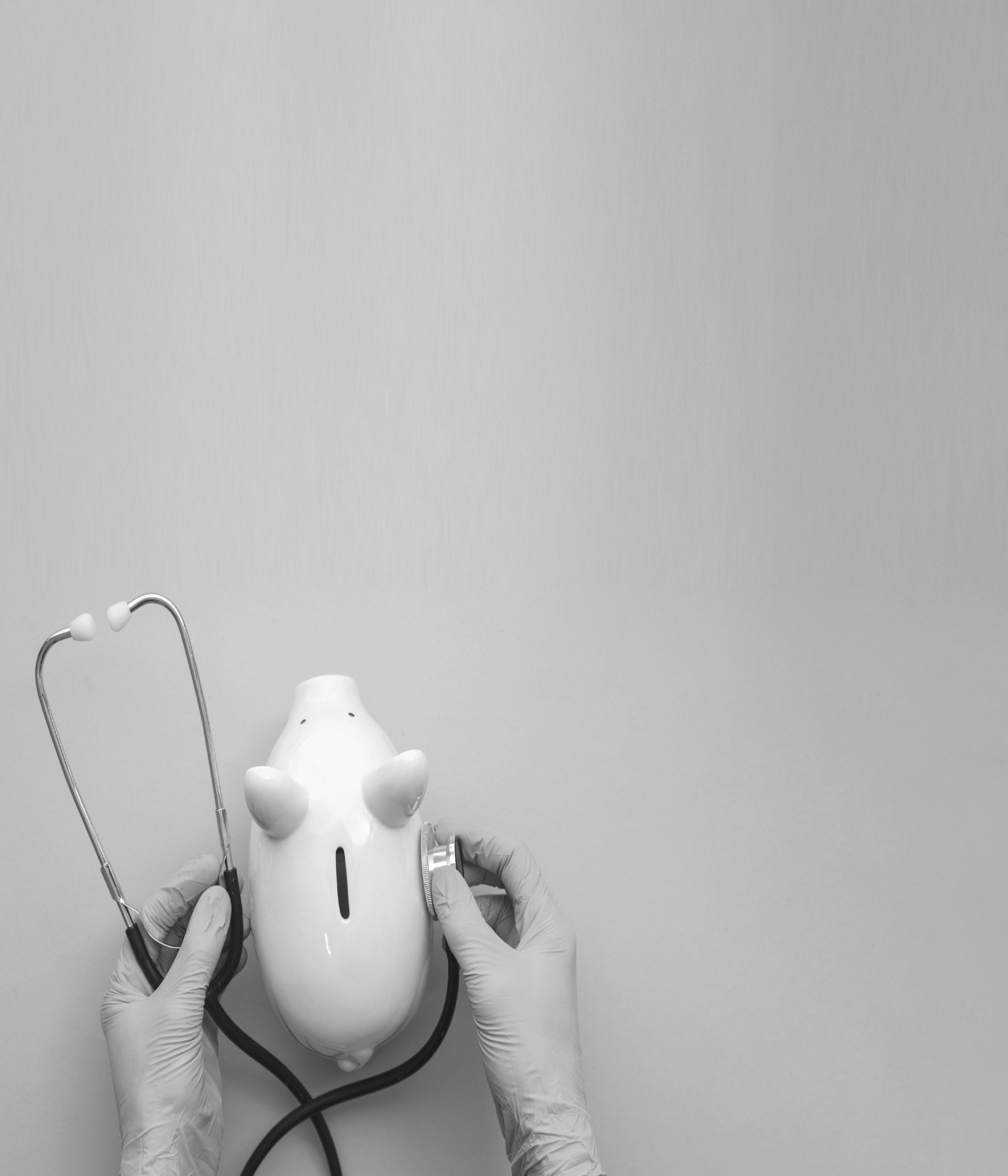

Health Check—Listen to your practice and the market. Current trends are showing it’s a sellers’ market. 2022 saw record sales for Simmons & Associates. Our large network of buyers are eager and ready to find the right practice. Let us sell your practice. Simmons & Associates will help with the whole process from start to finish. Valuation, listing, marketing and closing. Call today for a free consultation! www.simmonsinc.com Byron Farquer, DVM, CVA Dardalee Bussell, DVM pacific@simmonsinc.com (209) 845—2088
Something to About Wag
THE CVMA CONGRATULATES…
Chelsea Chiv, for receiving the 2023 Merck Animal Health Diversity Leadership Scholarship from the American Association of Veterinary Medical Colleges, awarded to veterinary students who have significantly contributed to advancing diversity and inclusion in academic veterinary medicine. On the local level, Chelsea serves the Student American Veterinary Medical Association, where she strives to promote diversity, equity, and inclusion through scholarships and establishing campus clubs like the Association of Asian Veterinary Medical Professionals. Chelsea is also a mentor for the Pre-Vet Students Supporting Diversity program, whose mission is to help pre-veterinary students from underrepresented communities navigate their journey to veterinary school. Chelsea, thank you for working to make veterinary medicine more welcoming and attainable for students!

Albert Escobedo, RVT, for his promotion from Shelter Clinic Manager at Los Angeles’ Stray Cat Alliance to Director of Veterinary Operations at the Humane Society of Sonoma County in Santa Rosa. Albert is a proud graduate of Purdue University’s four-year bachelor’s program in Veterinary Technology. He wishes to thank his teachers, mentors, DVMs, managers, and technician supervisors who pushed him to excel in all aspects of his career. Congratulations, Albert! We wish you great success in your new position!
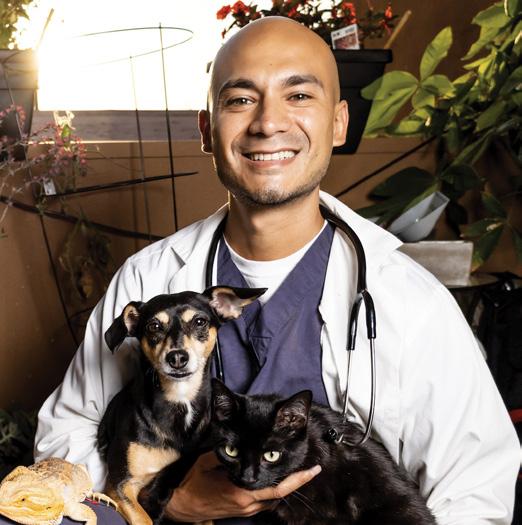
Sara Hagan Ghiglieri, for being the first CVMA Certified Veterinary Assistant (CVA) to successfully complete the Level II Program. Sara manages a three-generation veterinary clinic that was originally established by her grandfather and passed down through her family. Having recently purchased the clinic with her brother, Sara enrolled in the Level I and II Programs to benefit her practice and help solidify the information she has gleaned over 26 years in the business. Well done, Sara!
John Pascoe, DVM, for receiving the American Association of Veterinary Medical Colleges’ 2023 Billy E. Hooper Award for Distinguished Service. This award recognizes individuals whose leadership and vision have made a significant contribution to academic veterinary medicine and the veterinary medical community at large. Dr. Pascoe, the executive associate dean for the UC Davis School of Veterinary Medicine and a gifted equine surgeon, has been instrumental in shaping academic veterinary medicine at UC Davis and beyond. His many contributions include developing new ways for students to learn surgical methods, revising the DVM program’s curriculum to be more studentcentered, and creating opportunities for students to perform neutering services at local animal shelters, thus helping to curb over-population. Congratulations for this well-deserved honor, Dr. Pascoe!
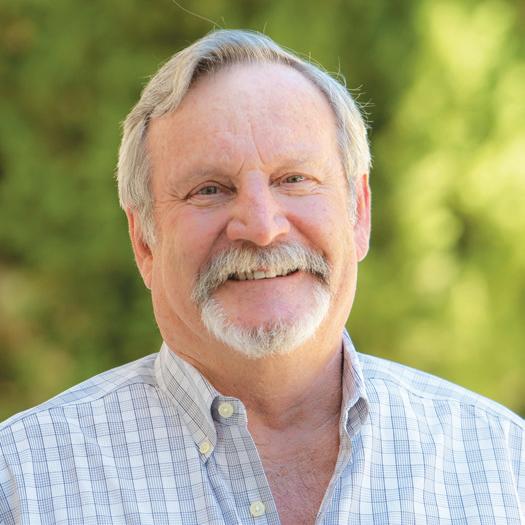
Got any good news?
The CVMA likes to champion the many accomplishments of our members and their practices, whether a professional development or a personal milestone. Don’t hesitate! Please send in your good news and a fun photo to Taryn DeOilers, the CVMA’s Publications Manager, at tdeoilers@cvma.net to be considered.

SOMETHING TO WAG ABOUT
37 cvma.net/publications
California’s 2023 Reportable Disease List and Laboratory Certification Program
By Emily Nietrzeba, DVM, MPH and Kavishti Kokaram, DVM, DACPVM CDFA Animal Health Branch
The California Department of Food and Agriculture’s (CDFA) List of Reportable Conditions for Animals and Animal Products (also known as the “Reportable Disease List”) has been reviewed and updated for 2023, and the current reportable disease list is included in this edition, as well as available on the CDFA Reporting Animal Disease website at cdfa.ca.gov/ahfss/ Animal_Health/Disease.html.
CDFA’s Animal Health Branch reviews the list annually in collaboration with veterinarians, public health and laboratory specialists, subject matter experts, and animal health advisories, and ensures that the list aligns with current reportable conditions as listed by the United States Department of Agriculture’s (USDA) National List of Reportable Animal Diseases and the World Organisation for Animal Health (formerly OIE). The reportable disease list mandates reporting of diseases and conditions that can have major impacts on California’s animal and livestock populations, including those affecting the food supply chain.
As a reminder, reporting conditions on this list is mandatory (pursuant to Section 9101 of the California Food and Agricultural Code, Title 3 California Code of Regulations §797 and Title 9 Code of Federal Regulations Section 161.4(f)). Emergency Conditions must be reported within 24 (twenty-four) hours of suspicion or confirmation, Regulatory Conditions within 48 (forty-eight) hours, and Monitored Conditions within 30 (thirty) days.
Effective January 1, 2022, CDFA was required to establish and implement a certification program for laboratories testing California’s livestock and poultry for Emergency or Regulatory conditions on CDFA’s List of Reportable Conditions for Animals and Animal Products (Senate Bill 703, Food and Agricultural Code; Division 5, Part 1, Chapter 1, Article 3.5, Sections 9151-9158). Per the new law, any testing performed for the examination, diagnosis, analysis, testing, quantifying, or identification of an Emergency or Regulatory condition of poultry or livestock now requires laboratory certification with CDFA. However, any laboratory that is approved, certified, or accredited by a state or the federal government to provide these services is exempt from this legislation.
The reasoning behind CDFA’s certification program is to ensure that regulated diseases are diagnosed using validated tests performed in an approved laboratory, thereby enhancing the accurate detection of conditions and reliability of results that could trigger a regulatory response within the state.
While this law was effective January 2022, CDFA’s primary focus over this past year has been outreach and education to relevant laboratories and veterinary clinics within California about the new legislation. We are now extending that same outreach and education to out-of-state laboratories. In that regard, while most of the testing done on California livestock and poultry is conducted at federal or state laboratories or laboratories within the state, some samples are being sent to out-ofstate laboratories either directly by practitioners or as reference samples to reconfirm diagnoses. We are requesting your help to disseminate information regarding the program to these laboratories in other states. Laboratories approved under this program and the regulatory diseases for which they are certified have been published on the California Animal Health Laboratory Certification website at cdfa.ca.gov/ahfss/animal_ health/cahlcp/.
Any questions and inquiries regarding this program may be directed to CDFA.AHB_labprogram@cdfa.ca.gov, and additional resources may be obtained on the program website referenced above.
38 California Veterinarian | March–April 2023 CDFA
While this law was effective January 2022, CDFA’s primary focus over this past year has been outreach and education to relevant laboratories and veterinary clinics within California about the new legislation.
January 2023
ANIMAL HEALTH BRANCH
LIST OF REPORTABLE CONDITIONS FOR ANIMALS AND ANIMAL PRODUCTS*
*Pursuant to Section 9101 of the California Food and Agricultural Code, Title 3 California Code of Regulations § 797 and Title 9 Code of Federal Regulations Section 161.4(f)
WHO MUST REPORT: Any licensed veterinarian, any person operating a diagnostic laboratory, or any person who has been informed, recognizes or should recognize by virtue of education, experience, or occupation, that any animal or animal product is or may be affected by, or has been exposed to, or may be transmitting or carrying any of the following conditions, must promptly report the condition(s) per the lists below.
WHAT TO REPORT: Immediately report any animal disease or condition not known to exist in the United States, any event with increased mortality and/or morbidity of unknown cause or source, and any toxicology condition likely to contaminate animals or animal products (meat, milk or eggs)
IN ADDITION TO LISTED CONDITIONS, CALL IF YOU SEE: High morbidity or mortality, vesicles, unexplained CNS signs, unusual ticks, hemorrhagic septicemias, unusual larvae in wounds, and/or unusual or unexplained illness
Report any emergency, regulatory, or monitored condition within the provided time frame Some diseases are listed under the major species of concern; if you see compatible signs for such conditions in another species, PLEASE REPORT!
MULTIPLE SPECIES
General, non-specific conditions: Unexplained high mortality or diseased animals; livestock exposed to toxic substances.
• Anthrax (Bacillus anthracis)1
• Crimean Congo hemorrhagic fever (CCHFV)1
• Foot-and-mouth disease (FMDV)
• Heartwater (Ehrlichia ruminantium)
• Japanese encephalitis (JEV)
• Melioidosis (Burkholderia pseudomallei)
• Rabies of livestock (Rabies virus)1
• Rift Valley fever (RVFV)
• Screwworm myiasis (Cochliomyia hominivorax or Chrysomya bezziana)
• Surra (Trypanosoma evansi)
• Vesicular stomatitis (VSV)
BOVINE
• African trypanosomiasis (Tsetse fly diseases, Trypanosoma spp.)
• Bovine babesiosis (Cattle tick fever Babesia spp )
• Bovine spongiform encephalopathy (PrPSc)
• Contagious bovine pleuropneumonia (Mycoplasma mycoides mycoides small colony type)
• Foot-and-mouth disease (FMDV)
• Hemorrhagic septicemia (Pasteurella multocida
B/Asian or E/African)
• Lumpy skin disease (LSDV)
• Malignant catarrhal fever (wildebeest-associated form, MCFV)
• Rinderpest (RPV)
• Schmallenberg virus (SBV) / Akabane virus
• Theileriosis / Bovine infectious anemia (Theilera parva parva, T.annulate, T orientalis Ikeda)
CAPRINE/OVINE
• Contagious caprine pleuropneumonia (Mycoplasma capricolum capripneumoniae)
• Foot-and-mouth disease (FMDV)
• Nairobi sheep disease (NSDV)
• Peste des petits ruminants (PPRV)
• Schmallenberg virus (SBV) / Akabane virus infections
• Sheep pox (SPPV) and goat pox (GTPV)
PORCINE
• African swine fever (ASFV)
• Classical swine fever (CSFV)
• Foot-and-mouth disease (FMDV)
• Nipah virus encephalitis (NV)
• Swine vesicular disease (SVDV)
AVIAN SPECIES
• Avian influenza (HPAI and H5/H7 LPAI)
• Turkey rhinotracheitis (Avian metapneumovirus)
• Virulent Newcastle disease (velogenic viscerotropic Newcastle disease, VNDV)
EQUINE
• African horse sickness (AHSV)
• Dourine (Trypanosoma equiperdum)
• Glanders (Farcy; Burkholderia mallei)
• Hendra virus infection (HeV)
• Venezuelan equine encephalomyelitis (VEEV)
• Vesicular stomatitis (VSV)
CERVIDS/LAGOMORPHS/CAMELIDS
• Middle East respiratory syndrome (MERS-CoV)
MULTIPLE SPECIES
• Brucellosis (B. melitensis, B. abortus, B. suis)1
• Pseudorabies / Aujeszky’s disease (SuHV-1)
• Tuberculosis (Mycobacterium bovis)1
• Tularemia (Francisella tularensis)1
BOVINE
• Bovine brucellosis (Brucella abortus)1
• Bovine tuberculosis (Mycobacterium bovis)1
• Trichomoniasis (Tritrichomonas foetus)
CAPRINE/OVINE
• Caprine and ovine brucellosis (Brucella melitensis)1
• Scrapie (PrPSc)
PORCINE
• Porcine brucellosis (Brucella suis)1
• Pseudorabies (Aujeszky’s disease; SuHV-1)
AVIAN SPECIES
• Fowl typhoid (Salmonella gallinarum)
• Influenza A virus H9 and emerging LPAI
• Ornithosis / psittacosis / avian chlamydiosis (Chlamydia psittaci)
• Pullorum disease (Salmonella pullorum)
EQUINE
• Contagious equine metritis (Taylorella equigenitalis)
• Eastern equine encephalomyelitis (EEEV)
• Epizootic lymphangitis (Histoplasma farciminosum)
• Equine herpesvirus myeloencephalopathy (EHM secondary to EHV)
• Equine infectious anemia (EIAV)
• Equine piroplasmosis (Babesia caballi or Theileria equi)
• Western equine encephalomyelitis (WEEV)
• West Nile Virus infection (WNV)
CERVIDS/LAGOMORPHS/CAMELIDS
• Chronic wasting disease (PrPSc)
• Rabbit hemorrhagic disease (RHDV)
WHERE TO REPORT:
CA Department of Food and Agriculture

Animal Health Branch (AHB) District Offices:
Redding 530-225-2140
Modesto 209-491-9350
Tulare 559-685-3500
Ontario 909-947-5932
CDFA Animal Health Branch Headquarters 1220 N Street
Sacramento, CA 95814
Telephone 916-900-5002 OR
US Department of Agriculture
Animal and Plant Health Inspection Services Veterinary Services (VS) 10365 Old Placerville Road, Suite 210 Sacramento, CA 95827-2518
Toll free at 1-877-741-3690
REPORT FISH, AMPHIBIAN, CRUSTACEAN, BEE, AND MOLLUSK DISEASES
as listed on USDA National List of Reportable Diseases
MULTIPLE SPECIES
• Bluetongue (BTV)
• Echinococcosis / hydatidosis (Echinococcus spp)
• Epizootic hemorrhagic disease (EHDV)
• Johne’s disease (Paratuberculosis; Mycobacterium avium paratuberculosis)
• Leishmaniosis (Leishmania spp.)
• Q Fever (Coxiella burnetii)
• Severe acute respiratory syndrome (SARS-CoV-2)1
BOVINE
• Anaplasmosis (Anaplasma marginale or A. centrale)
• Bovine cysticercosis (Taenia saginata)
• Bovine genital campylobacteriosis (Campylobacter fetus venerealis)
• Bovine viral diarrhea (BVDV, HoBiPeV)
• Enzootic bovine eukosis (BLV)
• Infectious bovine rhinotracheitis (Bovine herpesvirus1)
• Malignant catarrhal fever (MCFV, sheep-associated form)
CAPRINE/OVINE
• Caprine arthritis/encephalitis
• Contagious agalactia (Mycoplasma agalactiae, M. capricolum subsp. capricolum, M. mycoides subsp capri, M. putrefaciens)
• Enzootic abortion of ewes (Ovine chlamydiosis; Chlamydia abortus)
• Ovine progressive pneumonia (Maedi-Visna virus)
• Ovine epididymitis (Brucella ovis)
• Salmonella abortusovis infection
• Sheep scabies (Body mange; Psoroptes ovis)
PORCINE
• Porcine cysticercosis (Taenia solium)
• Porcine reproductive and respiratory syndrome (PRRSV)
• Senecavirus A infection (SVA)
• Swine enteric coronavirus diseases, including transmissible gastroenteritis
• Swine influenza (SIV or S-OIV)
• Trichinellosis (Trichinella spiralis)
AVIAN SPECIES
• Avian infectious bronchitis (IBV)
• Avian infectious laryngotracheitis (ILTV)
• Duck viral hepatitis (DHAV)
• Goose parvovirus infection (GPV)
• Infectious bursal disease / Gumboro disease (IBDV)
• Influenza A viruses (see Emergency Conditions for HPAI and H5/H7 LPAI)
• Mycoplasmosis (Mycoplasma synoviae and Mycoplasma gallisepticum)
EQUINE
• Ulcerative lymphangitis / Pigeon fever (Corynebacterium pseudotuberculosis)
• Equine herpesvirus-1 and 4 infections (excluding EHM)
• Equine influenza (EIV)
• Equine viral arteritis (EAV)
• Strangles (Streptococcus equi spp equi)
CERVIDS/LAGOMORPHS/CAMELIDS
• Camelpox (Camelpox virus)
• Myxomatosis (Myxoma virus)
1 Diseases in blue, seen in any species, are also reportable to the California Department of Public Health (CDPH)
For additional information, contact CDFA (email: evet@cdfa.ca.gov or visit our website at www.cdfa.ca.gov/ah) or USDA at http://www.aphis.usda.gov/animal_health
39 cvma.net/publications
EMERGENCY
Report
REGULATORY CONDITIONS Report within
Days of Discovery MONITORED CONDITIONS Report within 30 Days of Discovery
CONDITIONS
within 24 Hours of Discovery
Two
New CVMA Online Mentoring Presentations for Students and New Grads!
The CVMA is proud to announce its “Mentor Moments” online presentation program for WesternU and UC Davis veterinary students and new grads! We have a slate of seasoned CVMA member veterinarians who are eager to share their experience and knowledge in their fields of practice and take your questions about what to expect “out in the trenches” of veterinary medicine. We have four FREE 60-minute sessions slated for 2023. To accommodate your schedules, some will be offered at lunchtime and others in the evening.
Questions and open dialogue are encouraged!
To view the current list of upcoming Mentor Moment presentations, presenter bios, or to register for any of these sessions, visit the Resources tab at cvma.net and click on Student Events.
Upcoming Mentor Moments Sessions: Obtaining and Maintaining Wealth
March 23, 2023
5:30 PM–6:30 PM
Discussion led by Dr. Willie Bidot and Dr. Teresa Morishita
In this interactive online discussion, attendees will learn and be able to ask questions about:
• The basics of veterinary school debt and repayment options
• How to understand and negotiate a work contract
• Building your financial future, and planning for life beyond veterinary medicine
• How to maintain your wealth
Willie Bidot, DVM, MPH, MS, DACLAM Dr. Willie Bidot received his DVM degree from Tuskegee University. After completing a small animal rotating internship in south Florida and a Comparative Medicine Residency at the University of Missouri, he worked as a Clinical Assistant Professor at the University of Florida. He is currently a Diplomate of the American College of Laboratory Animal Medicine working as the Attending Veterinarian at Western University of Health Sciences.
Dr. Bidot has become a money nerd by virtue of having to tackle the $400k of student debt he and his wife (also a veterinarian) accrued during veterinary school. Through his path of financial literacy, he has found himself helping other veterinarians and veterinary students with their finances.


Teresa Morishita, DVM, Ph.D., DACPV Dr. Teresa Morishita received a dual DVM/MPVM degree and later a Ph.D. in Comparative Pathology from UC Davis. She completed a residency in Avian/ Poultry Medicine from the University of California-Davis and became a Diplomate of the American College of Poultry Veterinarians. Dr. Morishita has operated a private avian practice in California, worked in the California poultry industry as a veterinary consultant,

and served as the Assistant Director of the California Raptor Center at UC Davis. She is currently a Professor of Poultry Medicine and Food Safety at the Western University College of Veterinary Medicine, and an at-large member of the CVMA’s Board of Governors.
Dr. Morishita recognizes the importance of financial literacy throughout a veterinarian’s life and notes that the topic is inadequately covered in veterinary school. She has taken numerous financial planning courses and continuing education programs to develop her skills as an advisor to veterinary students, graduate students, residents, and interns regarding contracts and future financial planning. Dr. Morishita received a grant from the AVMA to develop an eight-week financial program for faculty advisers to help consult students on potential financial topics.
Working for a Corporate vs. Private Owner
April 24, 2023
5:30 PM–6:30 PM
Discussion led by Dr. Larry Correia and Dr. Brent Wooden
In this interactive online discussion, attendees will learn and be able to ask questions about:
• Private practice jobs, leadership, and ownership opportunities
• Corporate practice jobs and leadership opportunities
• The similarities and differences between corporate and private practice
Larry Correia, DVM Dr. Larry Correia is a director/partner at VCA Asher Animal Hospital in Redding, California. He graduated from Washington State University, where he received his Doctor of Veterinary Medicine degree. He originally worked in private practice and transitioned to working in corporate practice, where he has remained ever since. Dr. Correia does general small animal practice with an emphasis on surgery. Dr. Correia recently completed two terms on the CVMA’s Board of Governors, where he represented District 7, covering the northernmost portion of California.
40 California Veterinarian | March–April 2023 MENTOR MOMENTS
Brent Wooden, DVM
Dr. Brent Wooden is a small animal veterinary practice owner in Fair Oaks, California. He received his Doctor of Veterinary Medicine from the University of California, Davis and completed a one-year small animal rotating internship in Glendale, California prior to moving to his current location near Sacramento. Dr. Wooden progressed from small animal veterinary associate to hospital director, and ultimately to practice owner, and subsequently purchased a neighboring small animal practice and has opened a third practice in the foothills outside of Sacramento. Besides owning and managing his veterinary practice, Dr. Wooden is active in leadership for his local, state, and national veterinary associations. He currently serves on the CVMA’s Legislative and Political Action Committees and the Committee for Veterinary Technician Education and Activities for the American Veterinary Medical Association. Additionally, Dr. Wooden volunteers at UC Davis by participating in the first through third-year communication labs.
Accentuate the Positive: Starting Your Veterinary Career on an Optimistic Note September 11, 2023
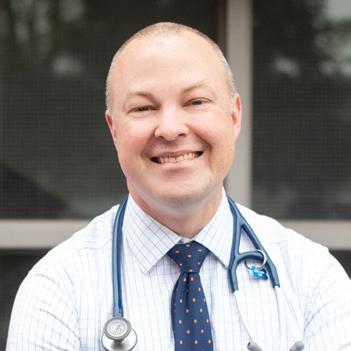
5:30 PM–6:30 PM
Discussion led by Dr. Georgina Marquez and Dr. Keith Rode
Leaving the confines of veterinary school and entering "the real world" can seem scary and daunting. We will discuss the highs and lows of the profession and how to find positivity even during the lows. Attendees of this webinar will participate in an informational but upbeat (and motivational!) discussion of topics such as:
• Positive aspects of being a veterinarian
• Putting yourself first
• Client communication
• The amazing power of listening
• Forming a sense of community with colleagues
• Job security, stability, and satisfaction
• Contemplating practice ownership
• Lifelong learning
Georgina Marquez, DVM, DACVIM (Internal Medicine)
Dr. Georgina Marquez was born and raised in Mexico City, Mexico. She graduated from the Universidad Nacional Autónoma de México and was accepted into the University of Minnesota to complete a rotating internship in small animal medicine and surgery. She then attended UC Davis to complete a small animal medicine and surgery residency.
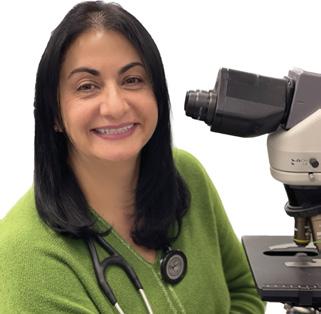
Dr. Marquez worked at a commercial laboratory as a consultant and received extensive training in clinical pathology. She then moved into working in private practice for both veterinarian owner practices and corporate owner practices. In 2020, amid the pandemic, she bought a general practice in Yorba Linda and converted it into a mixed practice of general medicine as well as a specialty hospital. She is a past president of the Southern California Veterinary Medical Association and currently serves as chair-elect of the House of Delegates for the California Veterinary Medical Association. Dr. Marquez is the proud mother of Rebecca and Chase.
Keith Rode, DVM
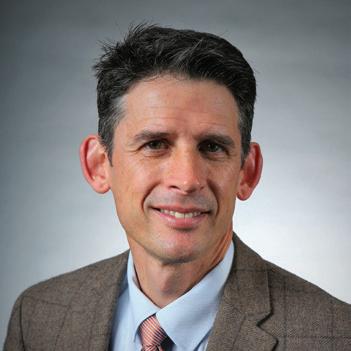
Dr. Keith Rode has been a small animal private practitioner at Woodland Veterinary Hospital (just north of Davis) since graduating from the UC Davis School of Veterinary Medicine. He started investing in ownership of the practice in 2012, becoming a 50% owner by 2020. Dr. Rode enjoys the wide variety of cases that come to a general practice, but especially managing endocrine cases and performing surgery. Dr. Rode has served on CVMA committees (including as chair of the California Veterinary Medical Foundation and Political Action Committee), the House of Delegates, and the Board of Governors. He was selected as the CVMA's "emerging leader" for the AVMA Veterinary Leadership Conference and is now serving as the CVMA's President for 2022–23. He is also a past president of the Sacramento Valley VMA and the Woodland Sunrise Rotary Club. Dr. Rode has been known to occasionally sing, act, run, and get far too emotionally involved in watching sports.
Adventures in Shelter Medicine
October 2, 2023
12:00 PM–1:00 PM
Discussion led by Dr. Jennifer Hawkins
Shelter medicine includes aspects of small animal medicine, wildlife medicine, surgery, epidemiology, public health, disaster response, and forensics. In this interactive, town-hall-style webinar, Dr. Jennifer Hawkins will share her experiences as a shelter veterinarian, HQHVSN surgeon, animal cruelty expert, and more. Attendees will learn:
• How shelter medicine compares to small animal practice
• The joys and challenges of working in an animal shelter
• The roles of shelter veterinarians, chief medical officers, and shelter directors
• The shelter veterinarian’s responsibilities in animal cruelty cases and disaster response
Jennifer Hawkins, DVM Dr. Jennifer Hawkins graduated from the UC Davis School of Veterinary Medicine and has worked in a variety of roles, including small animal private practitioner, RVT instructor at Cal Poly Pomona, contributing web copywriter for Veterinary Pet Insurance (now Nationwide), and shelter veterinarian. For ten years, Dr. Hawkins worked at OC Animal Care, a large municipal animal shelter in Orange County, California, where she held the roles of Chief Veterinarian and Director.
Dr. Hawkins has also maintained a prominent role in organized veterinary medicine throughout her career. She has served on the Board of Trustees of the Southern California Veterinary Medical Association (SCVMA) and as a CVMA Delegate and CVMA House Chair. Dr. Hawkins currently represents District 2 (Los Angeles and Orange Counties, Antelope Valley cities) for the CVMA’s Board of Governors. In late 2021, Dr. Hawkins took on the position of Executive Director of the SCVMA.
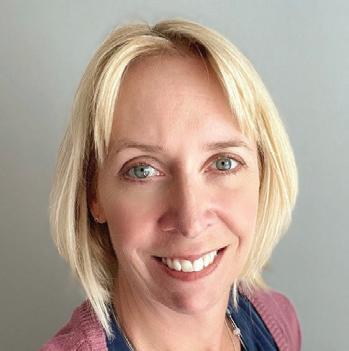
41 cvma.net/publications
Introducing the Student Poster Presenters at the 2023 PacVet in Long Beach
be available to take questions and further discuss their theses during lunch breaks and afternoon breaks on Saturday, June 10 and Sunday, June 11.
UC Davis Student Poster Presenters and Topics
Meghan Poth, Class of 2025
• Tale of Two Metabolites: An Analysis of the Pharmacokinetics of Morphine When Administered Orally
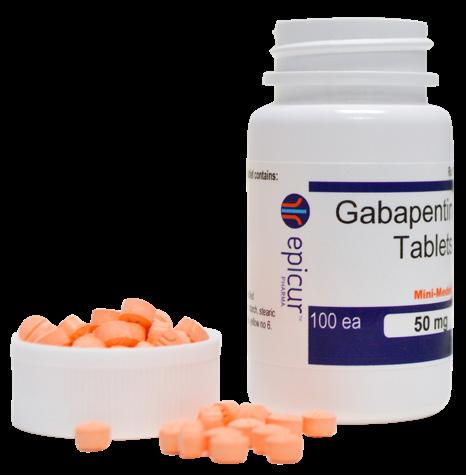

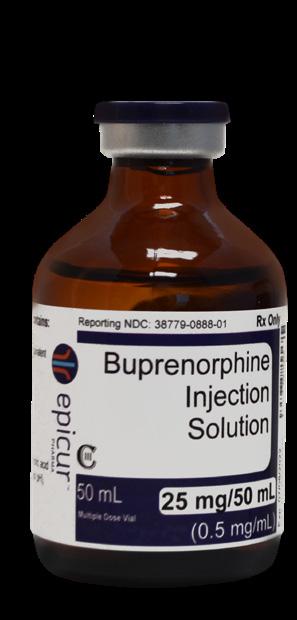
WesternU Student Poster Presenters and Topics
Dylan Johnston, Class of 2024
• Histopathologic Findings Associated with Natural Infection with Highly Pathogenic Avian Influenza Virus A (H5N1) in Three Juvenile Raccoons (Procyon lotor)
Anastassiya Kantserova, Class of 2025
• Canine Urine Mycobiome After Consuming a Plant-Based Diet for a Year
Austin Kyan, Class of 2024
• DMH1 Attenuates Tumor Growth of Chemo-Resistant Prostate Cancer in the Mouse Xenograft
PacVet Alumni Receptions

Veterinary students from the UC Davis School of Veterinary Medicine and the Western University of Health Sciences College of Veterinary Medicine will be presenting their research at the Vet Expo of the Pacific Veterinary Conference in Long Beach. The student presenters will
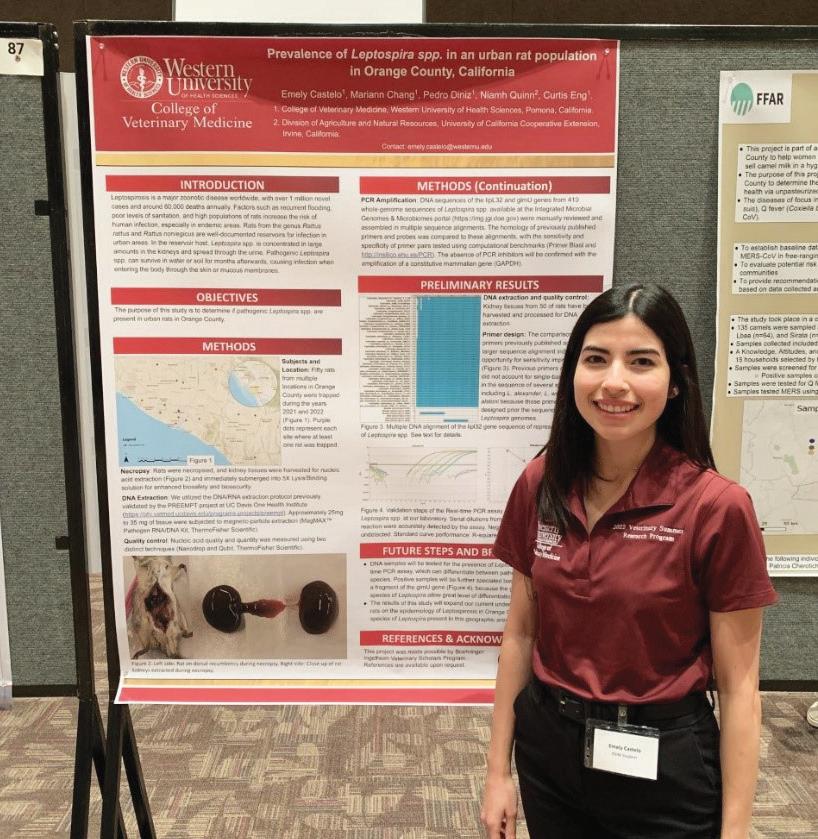
Aleksandra Antoszewski, Class of 2025
• Influence of Tibial Osteotomies on Rotational Instability of the Canine Stifle Emely Castelo, Class of 2024
• Investigating the Prevalence of Leptospira Spp. in an Urban Rat Population in Orange County, California
Attention all UC Davis and WesternU alumni! You are invited to join your peers and current students at evening receptions on Sunday, June 11 from 5:30 PM to 7:00 PM. Catch up with former classmates, make new friends, dine on hors d’oeuvres, and enjoy a no-host bar.

42 California Veterinarian | March–April 2023 STUDENT NEWS
Stock these manufactured meds! CVMA Recommended Member Benefit! Members receive a 10% discount Approved for in-house administration and dispensation in California 100% manufactured by a 503B facility following FDA enforced regulations Longer dating in comparison to other alternatives All medications ready to ship same day, 2 days in transit ® Scan the QR code for a list of available drugs ORDER TODAY! 888.508.5032
Emely Castelo
Clinical Trials Reversing Deadly Feline Disease
improving treatments for FIP. With all clinical signs related to her previously diagnosed FIP now resolved, Lily’s remission shows the great promise these new therapies hold.
enrolling two treatment groups—one will receive GS-441524 and the other will receive remdesivir for comparison. Lily’s treatment group has not been revealed as the clinical trial is ongoing.
Lily, a nine-month-old female Bengal cat, is now in remission from feline infectious peritonitis (FIP) thanks to clinical trials at the UC Davis veterinary hospital. Currently enrolling cats, these new clinical trials are focused on
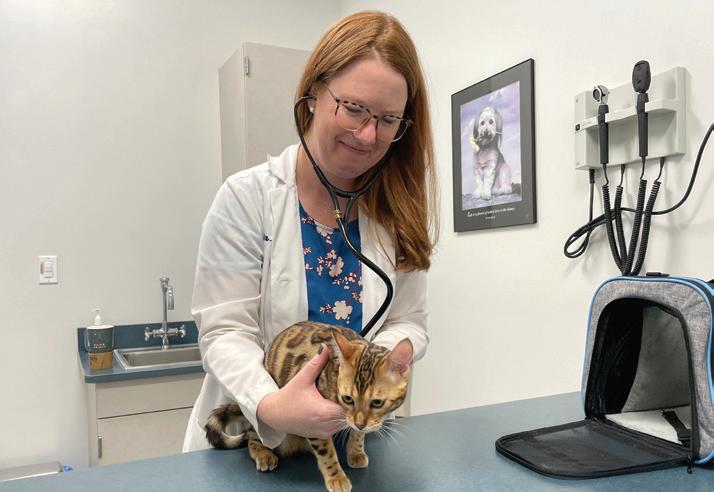
Previous UC Davis research uncovered several promising treatments for this disease, including the use of the oral antiviral drug, GS-441524. However, the drug is not readily available in the United States. The current trials expand on that research to further improve FIP treatment.
The trial in which Lily participated investigates oral remdesivir, which is similar to GS-441524. This study is
WesternU Professor Honored by Humane Society Veterinary Medical Association
outstanding commitment to advancing animal health and welfare and to advocating for the humane treatment of animals.
Another trial seeks to determine if antiviral drugs combined with mesenchymal stem cells may improve response to treatment for FIP. The two treatment groups in this study will either receive GS-441524 along with an infusion of a novel cell-based therapy, or GS-441524 with a placebo. Cats must be within 3-12 months of age and have the wet form of FIP.
Find more information on these trials at clinicaltrials.vetmed.ucdavis.edu or contact the Veterinary Center for Clinical Trials at vetclintrials@ucdavis.edu or 530.754.1954.
The Humane Society Veterinary Medical Association (HSVMA) recently honored Dr. James Reynolds, DVM PVC, DACAW, with the Humane Achievement Award for his many years of service to farm animal health. This award recognizes veterinary professionals who have made an
Raised on a dairy farm, Dr. Reynolds has devoted his professional veterinary career to improving the health and welfare of farm animals, particularly cattle. He has worked within the industry to advocate for welfare improvements for cattle, serving as a consultant on dairy management, animal welfare, and environmental sustainability in the United States and other countries. He also brought his welfare perspective to the academic setting, first as Chief of Clinical Services for Production Medicine at UC Davis and currently at Western University of Health Sciences, where he is a professor of large animal medicine/welfare.
Within the professional arena, Dr. Reynolds has served as chair of both the American Veterinary Medical Association and the American Association of Bovine Practitioners Animal Welfare committees. He is currently a member of the California Veterinary Medical Association's Animal Welfare Committee and conducts animal welfare audits and courses on cattle welfare for various organizations.
The HSVMA also cited Dr. Reynolds’ decades of volunteer work, where he has given time and expertise to help numerous animal welfare groups, including the HSVMA and the Humane Society of the United States, on advocacy efforts related to farm animal welfare. His previous advocacy work includes fighting to ban tail docking of dairy cattle, improving treatment of downed animals, ending inhumane rodeo events, and requiring more humane housing for farmed animals. Dr. Reynolds was also one of the lead signatories on the amicus brief filed with the Supreme Court in support of Proposition 12, California’s humane farm animal confinement initiative.
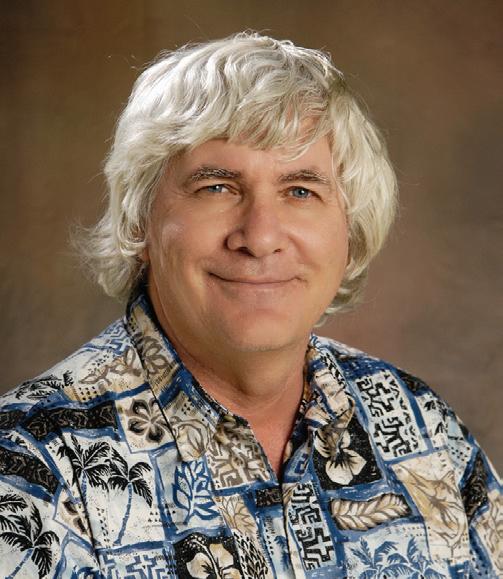
43 cvma.net/publications UNIVERSITY NEWS
WESTERN U NEWS
UC DAVIS NEWS
Ellie Wattles, DVM, President, Broker
Beka Herrera, Vice President, Broker
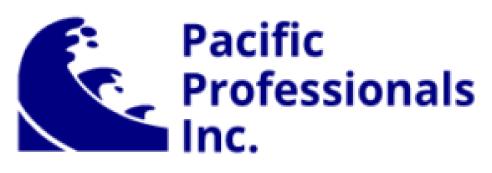
SAN BERNARDINO COUNTY, INLAND EMPIRE: Popular community with new residents because of its affordable and upscale housing. The community is only 45 minutes from Palm Springs & close to all the Southern CA’s attractions. PX is conveniently located in a high activity shopping center. Leased 2,100 sq. ft. facility includes 2 exam rooms as well as a large treatment area. Well-equipped practice includes digital X-Ray, digital dental X-Ray, ultrasound and IDEXX lab equipment. 2022 Projected Gross ~$1.2 Million. NEW LISTING! PRACTICE PRICE: $960,000
MADERA COUNTY: Slip away from the hustle and bustle to this enchanted covenant area of nature and wildlife situated in the San Joaquin Valley. This community is centrally located between Fresno and Yosemite National Park. Full service practice is located within a free- standing ~1,680 sq. ft. facility with a favorable lease rate. The facility includes 2 exam rooms, 20 cages & IDEXX lab equipment. 2022 projected gross ~$536,000 produced with very limited DVM hours, which still provides exceptional cash flow of about 39%. Buyer’s after debt income expected to be approximately $225,000. Minimal competition and significant growth opportunities with a new energetic owner. NEW LISTING! PRACTICE PRICE ONLY: $451,000
KERN COUNTY: Situated in a growing community located ~1 hour North of LA with a strong agricultural, oil & general broad economic base including a new Amazon fulfillment center. There are many nearby amenities & affordable housing. This general Small Animal practice offers an ~3,000 sq. ft. facility with 3 exam rooms, 60+ cages and 10 runs. Equipment includes ultrasound & digital X-RAY. 2022 Gross ~$1,195,000. Potential to significantly increase hours of operation to grow productivity. PRACTICE PRICE: $667,000 REAL ESTATE PRICE: $425,000
MENDOCI N O COUNTY: Wanna getaway? Just 2 hours north of the San Francisco Bay Area & west of Sacramento. This area boasts spectacular scenery & distinctive wineries. Hundreds of miles of hiking trails, verdant hills & secluded lakes residents can easily find solitude & beauty. 1 PT DVM PX. ~1,500 sq.ft leasehold facility located in a small strip-center. 2021 Gross~ $556,000 produced with very limited hours. PRACTICE PRICE ONLY: $99,900.
SAN DIEGO, EAST COUNTY Suburban, affluent community with strong economic base offers an exceptional lifestyle. Reputable & very organized practice located in a diverse business plaza. ~3,500 sq. ft. leased facility w/ 3 exam rooms, in-house lab, ultrasound, digital dental X-Ray, digital X-Ray & class iv medical laser. Computerized, full-service hospital with experienced staff. 2022 Projected Gross ~$1.2 million produced with limited DVM hours. Current available income after all debt service is ~$417,000. Owner open to remaining post-sale, if desired. Excellent turn-key opportunity NEW LISTING! PRACTICE P PRICE: $950,000
SANTA CRUZ COUNTY, SCOTTS VALLEY: Located about six miles north of the City of Santa Cruz and 26 miles southwest of San Jose. Historic downtown, ideal weather & various amenities. Well established practice situated along a major thoroughfare. Free-standing facility is ~ 2,000 sq. ft. with 2 exam rooms. Equipment includes DR X-Ray & IDEXX lab. 2021 Gross $968,000. MAJOR PRICE REDUCTION! SELLER MOTIVATED, MAKE US AN OFFER! PRACTICE
PRICE ONLY: $300,000
SUTTER COUNTY: Turn-key opportunity! Located within an hour’s drive from Sacramento. The community provides convenient shopping & amenities. The practice is located adjacent to a major thoroughfare with excellent street visibility & ample parking. Spacious ~2,700 sq. ft. free-standing facility offers 3 exam rooms, 20+ cages & 20+ runs. Equipment includes newer digital X-Ray, ultrasound unit, dental X-Ray & CO2 Laser. 2022 Projected Gross ~$1.2 Million. Currently operated as a 1 DVM practice with great staff. Exceptional profitability. PRACTICE PRICE: $950, 000 REAL ESTATE PRICE: $560,000
VENTURA COUNTY: Nestled in a flourishing valley boasting spacious mountain views and a perpetual vacation climate. The community itself is just less than 1-hour drive to Los Angeles or Santa Barbara. Spacious, organized leased practice underwent recent upgrades. The practice consists of 2,700 sq. ft with 2 exam rooms. Equipment includes digital X-Ray, digital dental X-Ray & ultrasound. 2022 Projected Gross ~$806,000 produced with limited services and hours. Multiple opportunities for growth, including a facility redesign, with a new energetic owner operator. NEW LISTING! PRACTICE PRICE: $655,000
CENTRAL VALLEY, SAN JOAQUIN COUNTY: Just 2 hours from major cities, the coast & the mountains. This semi-rural community has a strong agricultural & general broad economic base, offering affordable housing in the surrounding area. General, full-service small animal practice. The free-standing practice facility consists of ~6,900 sq. ft. offering multiple exam rooms & cages with room for future expansion, if desired. Equipment includes extensive IDEXX lab & 2 digital X-Rays. Multi- DVM practice with well trained staff. 2021 gross ~$1,750,000. NEW LISTING! PRACTICE PRICE: $750, 000 REAL ESTATE PRICE: $1,750,000
44 California Veterinarian | March–April 2023 CLASSIFIED ADVERTISING
Brokers and Appraisers Practice and Real Estate Sales Transition Specialists Practice Valuations
Celebrating our 31st year assisting veterinarians! Contact us to learn how we can help achieve your goals of selling or buying. Visit us at the 2023 PacVet Conference in Long Beach - Booth # 431 545 Sespe Avenue Fillmore, CA 93015 Phone: 805.524.3195 Fax: 805.524.3192 E-mail: PacProInc@aol.com Website: www.pacificproinc.com
Placing a Classified Ad
Place your ad in the Career Center at cvma.net. There are two options for classified advertising:
1. Online advertising
2. Online and in one issue of the California Veterinarian CVMA Members NonMembers
Online only
30 days online $169 $249
60 days online $269 $349
90 days online $369 $449
Online and in one issue of the California Veterinarian
60 days online + one issue of the California Veterinarian $319 $399
90 days online + one issue of the California Veterinarian $419 $499
Post an Anonymous Resume or Ad Resume—Post a confidential resume. Go to cvma.net. Click on the Resources tab then Classifieds in the right menu to get started.
Ad—Place a confidential ad by creating an anonymous email address and using it when posting your ad.
Print Display Advertising
The CVMA’s California Veterinarian magazine is mailed bi-monthly to all CVMA members and licensed California veterinary practitioners, reaching veterinarians of all practice types. The magazine is also sent to veterinary academia, including veterinary school faculty, researchers, and veterinary students. CVMA members receive discounts on all advertising.
Print Insertion Order Deadlines: Issue Deadline
Jan/Feb November 1
March/April January 1
May/June March 1
July/Aug May 1
Sept/Oct July 1
Nov/Dec September 1
Digital Display Advertising
The CVMA offers two digital print advertising opportunities. The CVMA’s Weekly e-newsletter, distributed every Wednesday to all CVMA members, includes the most up-to-date information about issues
*Price includes the first six lines of text. Each additional line is $10/$11 for non-members. A line consists of approximately 50 characters.
**If you wish to place a print ad only, contact Laura Phillips at 916.649.0599 or classifieds@cvma.net.
If you have any questions, please contact customer service at 860.437.5700, clientserv@yourmembership.com, or classifieds@cvma.net.
Deadline dates for ad submissions in the California Veterinarian:
Issue
Deadline
Jan/Feb December 5
March/April February 5
May/June
July/Aug
Sept/Oct
Nov/Dec
April 5
June 5
August 5
October 5
If your ad is received after the deadline, it will go into the following month’s California Veterinarian. After the deadline, the CVMA cannot alter or cancel ads. The CVMA reserves the right to edit copy and does not assume liability for contents of classified advertising. Prices subject to change without notice.
relevant to the veterinary profession. Advertisements in the Weekly e-newsletter are banner ads that are hyperlinked to the company website.
The CVMA’s monthly Upcoming CE e-blast provides information regarding currently scheduled CVMA continuing education events. Advertisements for the Upcoming CE e-blast can include a logo and text (up to 70 words), which may include contact information and is hyperlinked to the company website.
For more information on rates, deadlines, specifications, and more, and to view our Media Kit, contact Taryn DeOilers at tdeoilers@cvma.net, or click Resources > Display Advertising Opportunities at cvma.net.
All advertising is subject to the publisher’s approval. The publisher reserves the right to reject advertising which it feels is not in keeping with the advertising standard. The publisher reserves the right to reject, discontinue, or omit any advertising or any part thereof.
45 cvma.net/publications CLASSIFIED/DISPLAY ADVERTISING
Classified Advertising

HOSPITALS—SALES/LEASE/BUY
1+ Dr Small Animal practice in So. Sac. County, Central Valley wine country. Small town QOL. Leasehold with 30yrs in same location, excellent community reputation. Digital X-ray and dental x-ray, well equipped dental suite. >420,000 gross w/4day work week and small staff. 15% margins, opportunity to increase revs with added staff and/or hours. Asking $250,000. Offers considered. Contact: LD_LIDEN@SBCglobal.net.
ADVERTISING INDEX
46 California Veterinarian | March–April 2023 CLASSIFIED ADVERTISING BioNote ...................................................................... 34 Epicur Pharma ............................................................ 42 Gatto McFerson …....................................................... 15 Omni Practice Group .................................................. 47 Pacific Professionals Inc. …........................................ 44 Preferred Employers Insurance …................................ 2 Simmons …................................................................. 36 Veterinary Insurance Services Company ............. 31, 48


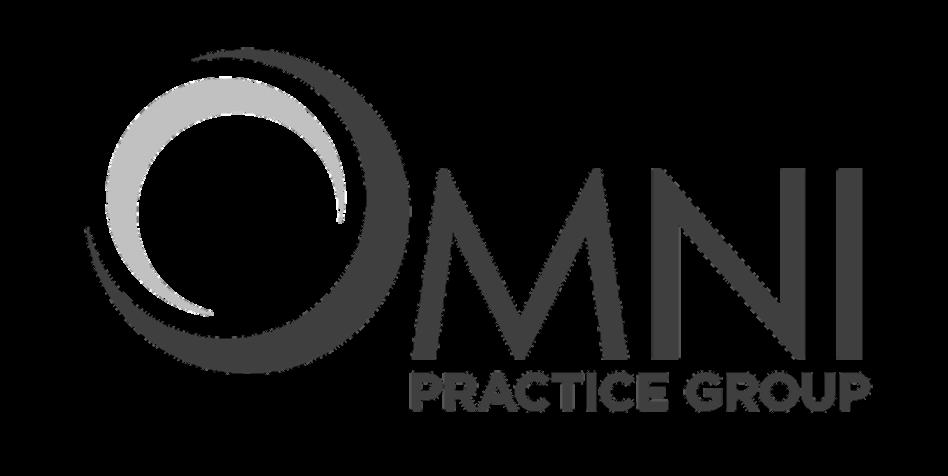
Our new local California Broker Kim Ford 877-866-5063 | info@omnipg-vet.com | omnipg-vet.com Rod Johnston, MBA, CMA License #2055355 License #2205339 Principal Broker and Founder Scan for our upcoming Practice Transition Seminar in the Santa Clara area this April We can help. Thinking about an Exit Plan? We've sold over 300 practices in the past 25 years.
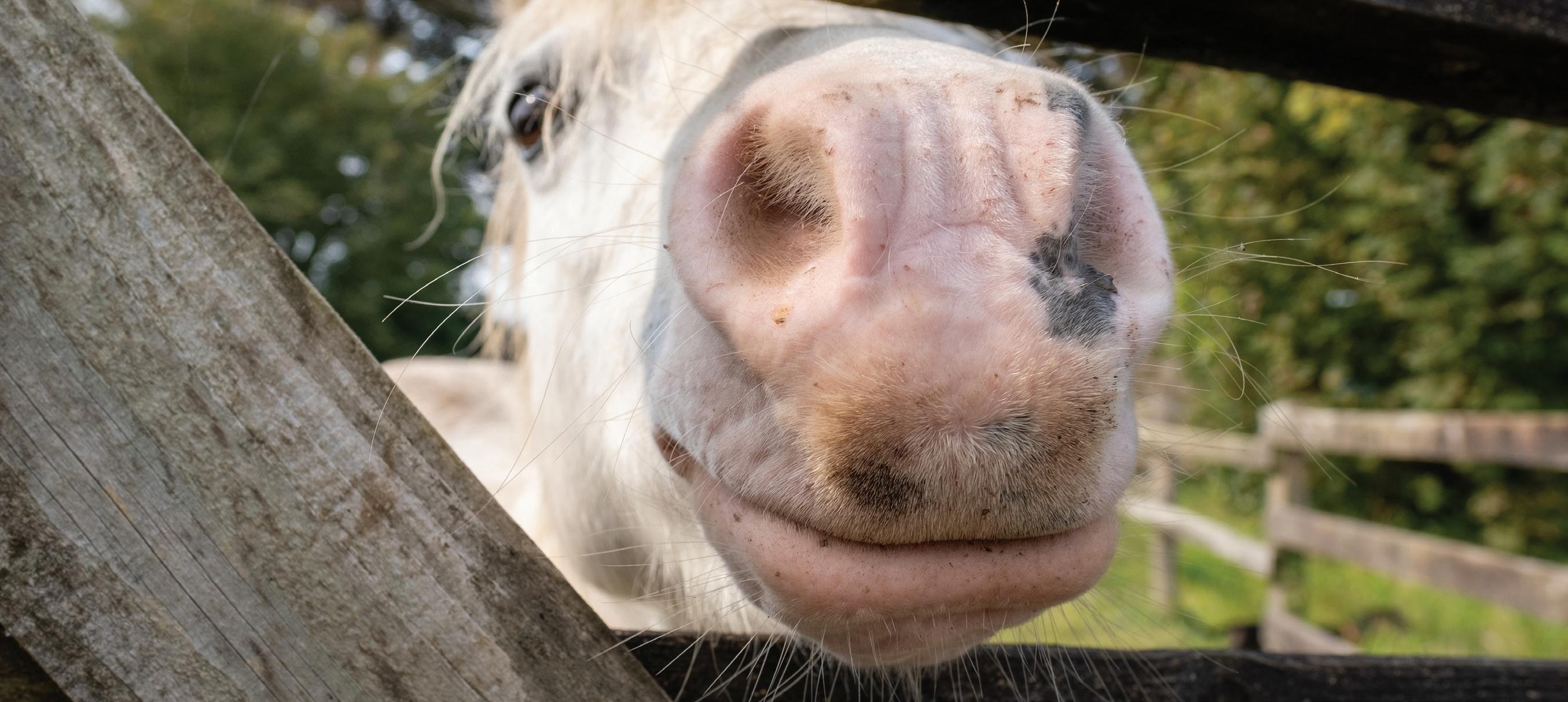
we're not nosey. But we do know your business. visc-ins.com Call VISC at 888.762.3143 or email info@visc-ins.com for solutions to all your insurance needs. VISC is a wholly owned subsidiary of the California Veterinary Medical association | CA Lic. #0F64180 Insurance for veterinarians...by veterinarians. Select coverages now offered in Arizona! Business Package | Veterinary Malpractice | VMB Defense | Employment Practices Liability (EPLI) | Workers’ Compensation Commercial Auto/Umbrella | Homeowners | Renters | Auto | Boat | Personal Umbrella | Long-Term Care | Disability | Life

















































































